After the first NPL edition of Maths & Science @ Work being a huge success last year, we decided to run it again even bigger and better! On Wednesday August 30, over 170 Year 7 & 8 students from Cobden Technical School, Terang College and Timboon P12 School, and Year 9 students from Colac Secondary College enjoyed hands-on workshops that showed how a range of industries use maths and science. The workshops allowed students to complete practical applications of classroom learning, connect with local industry members, see what jobs their interests can lead them into and discover applications of maths and science that they’d never thought of.
The program was originally run by WestVic Dairy and restarted by the NPL with huge help from the DemoDAIRY Foundation.

Here are descriptions of the amazing workshops the industry members ran:



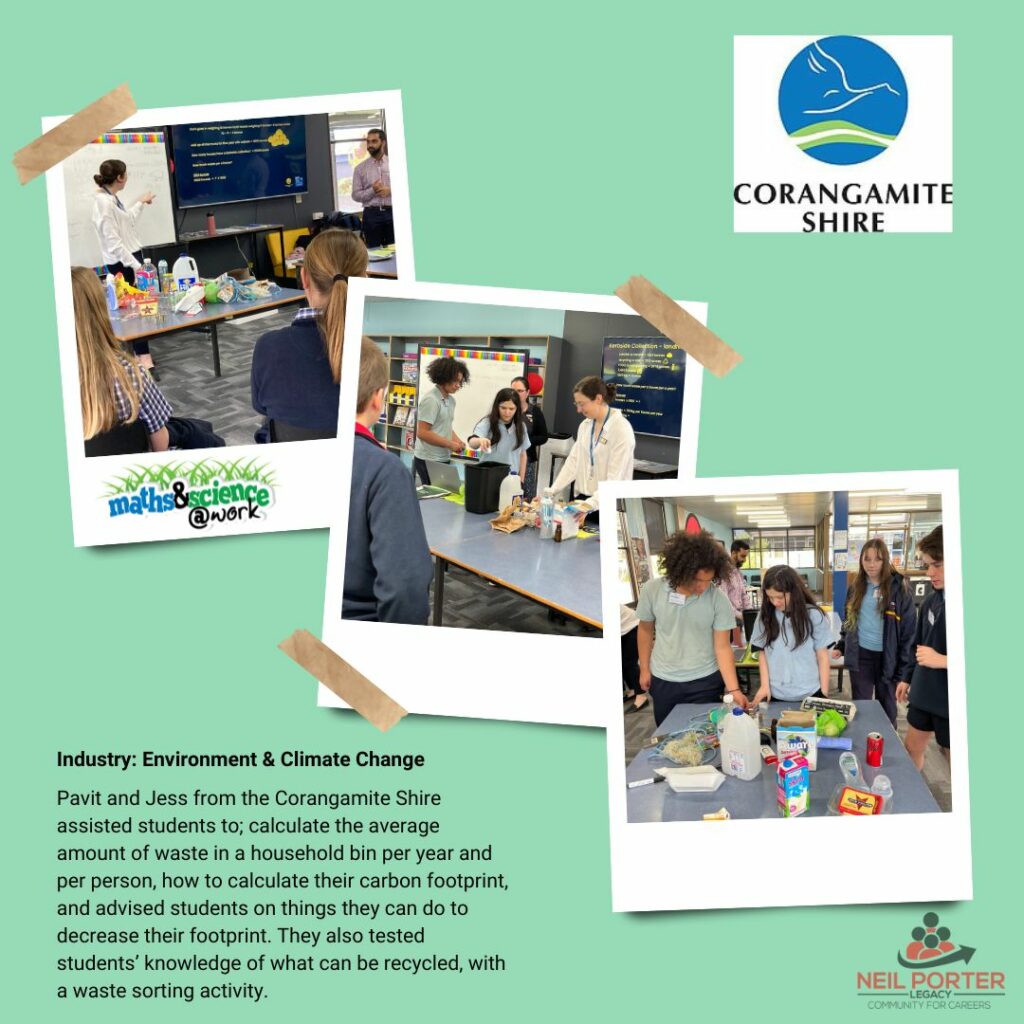
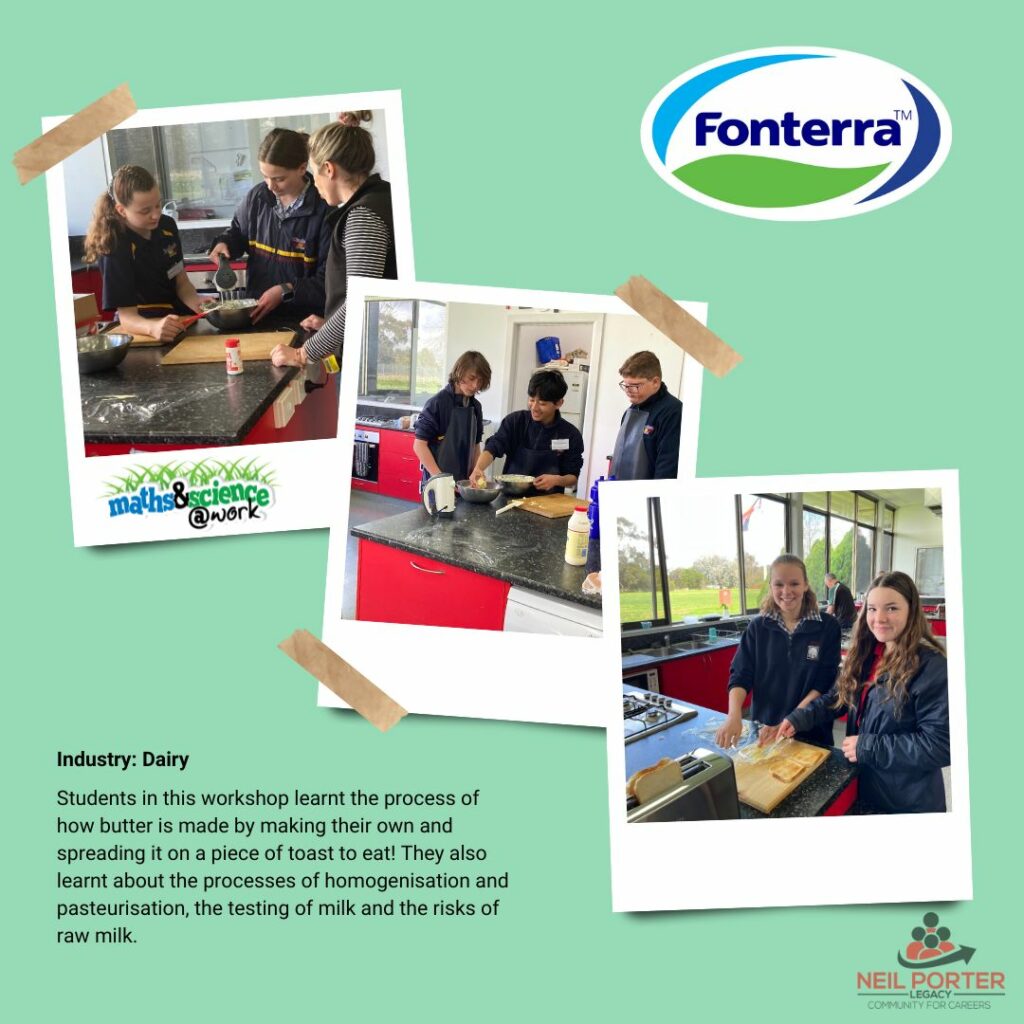

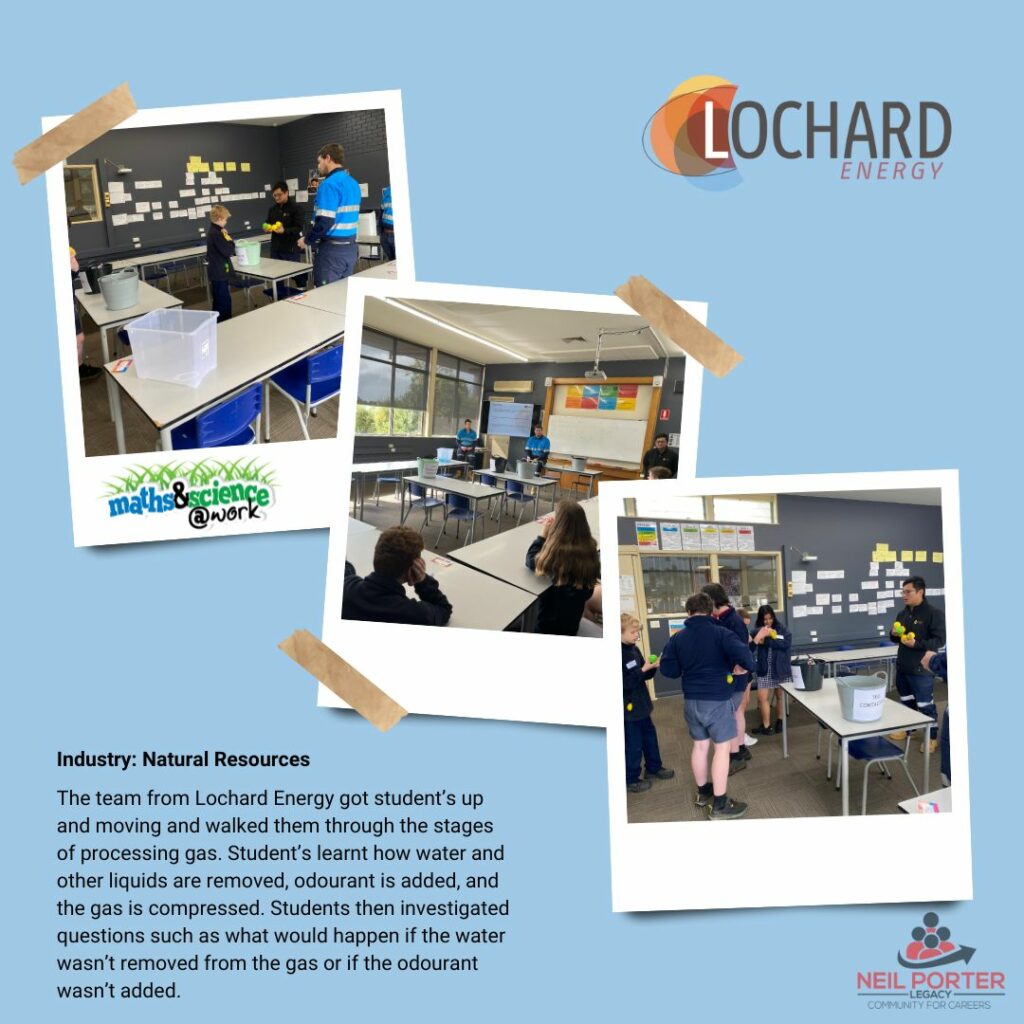
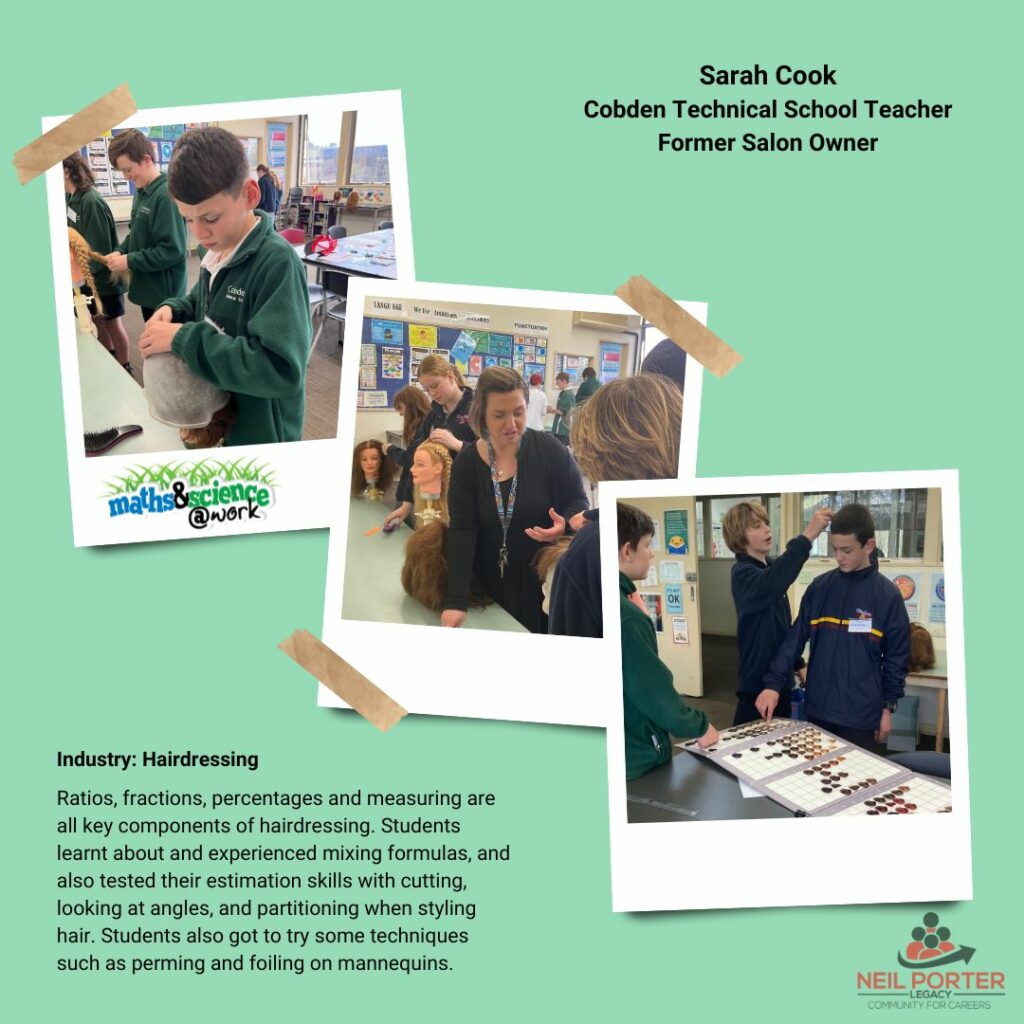
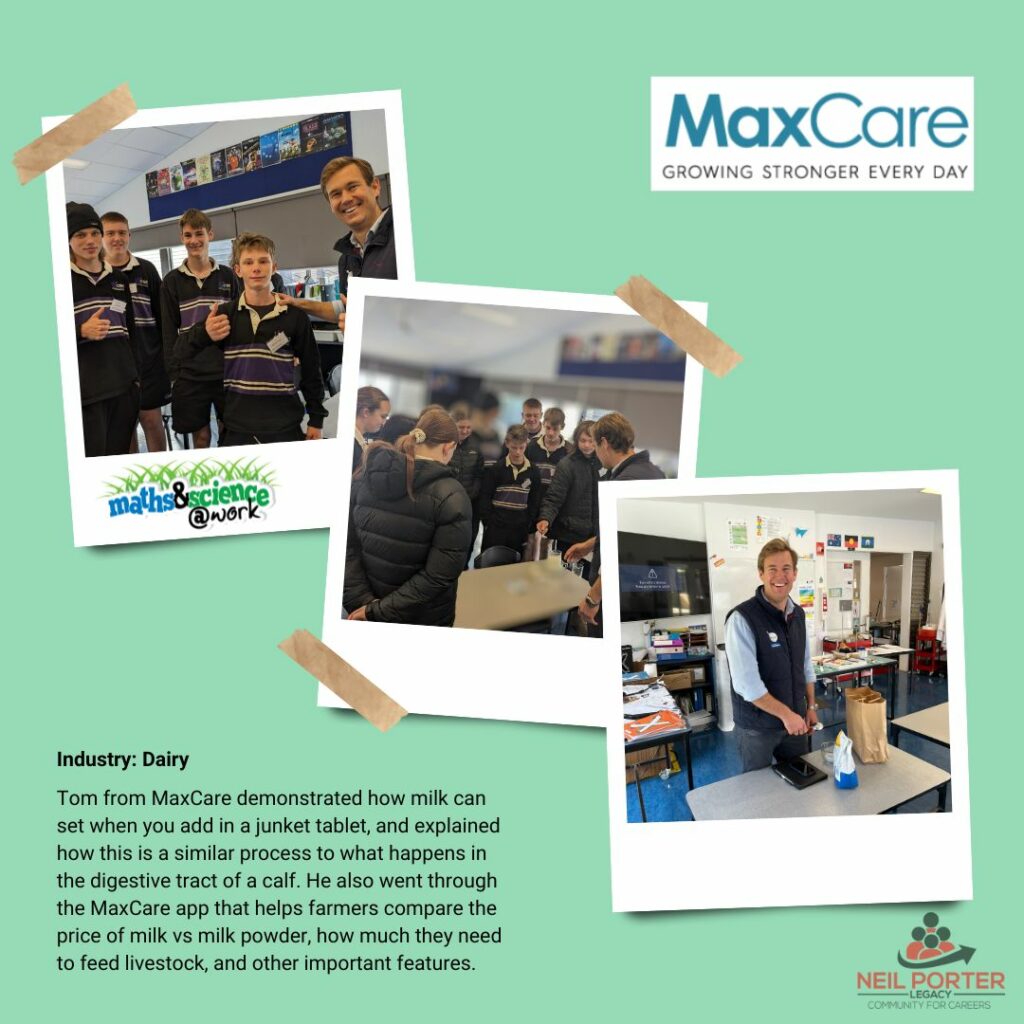
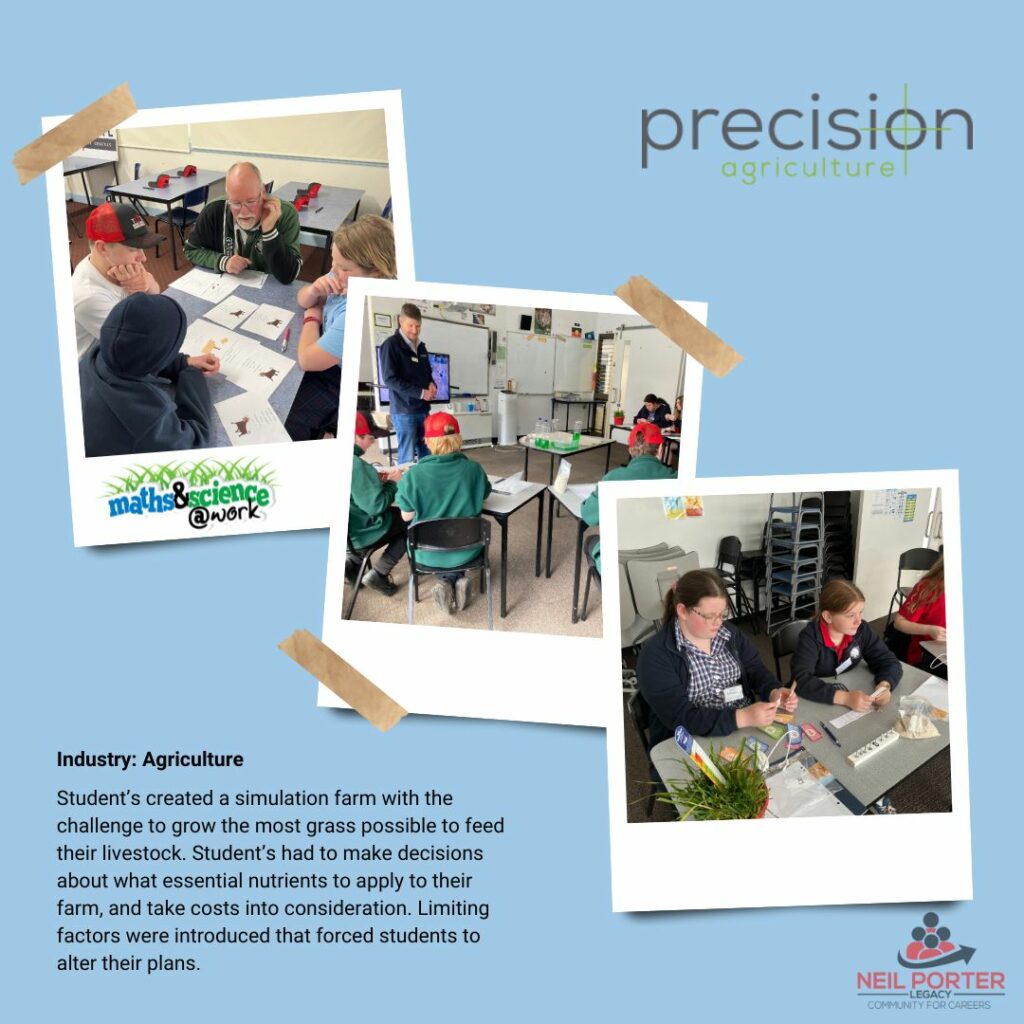
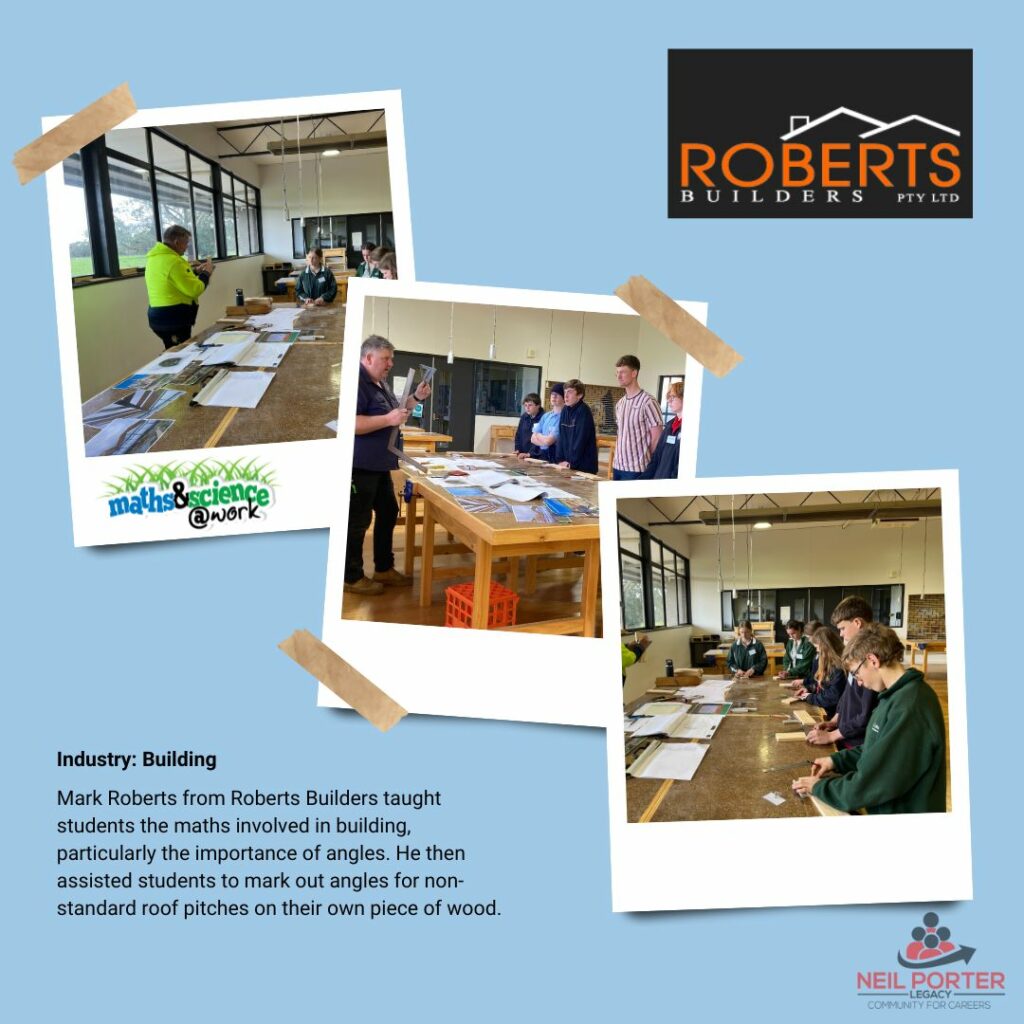
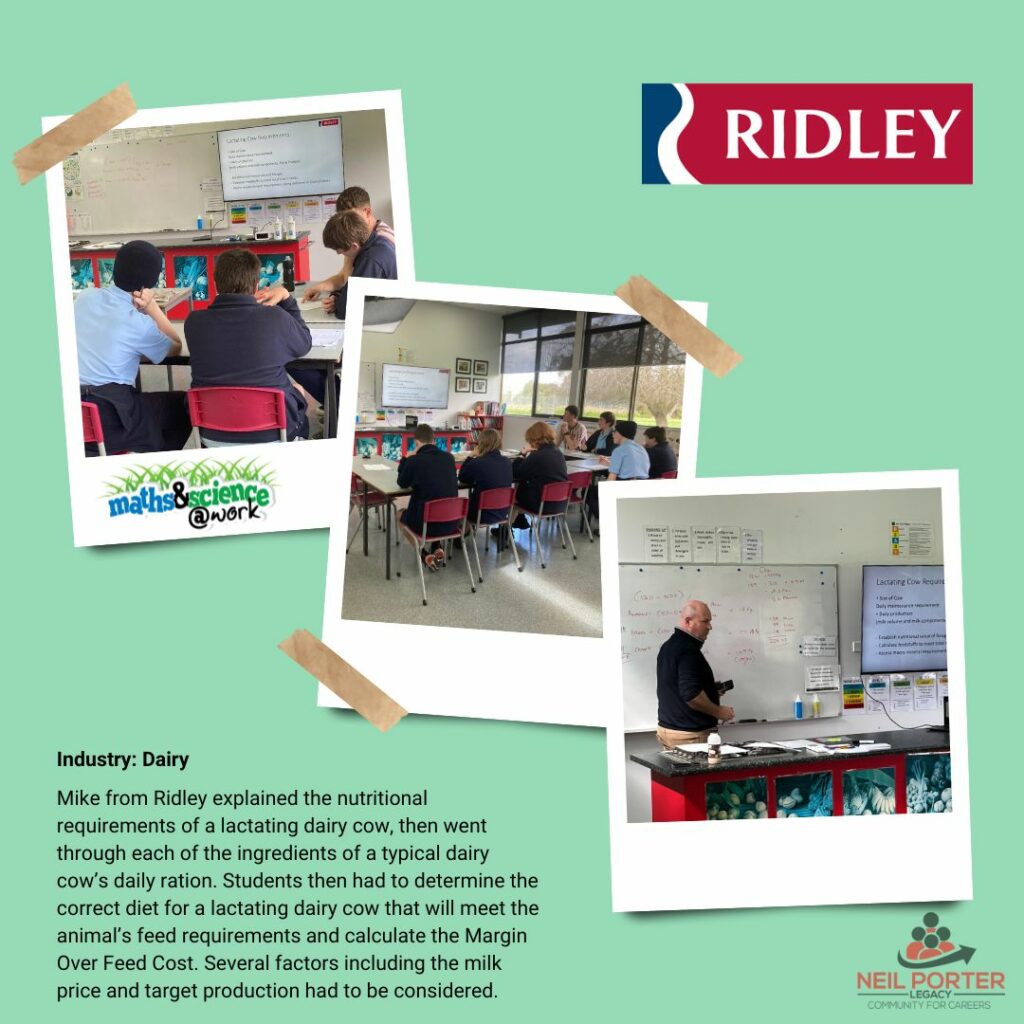
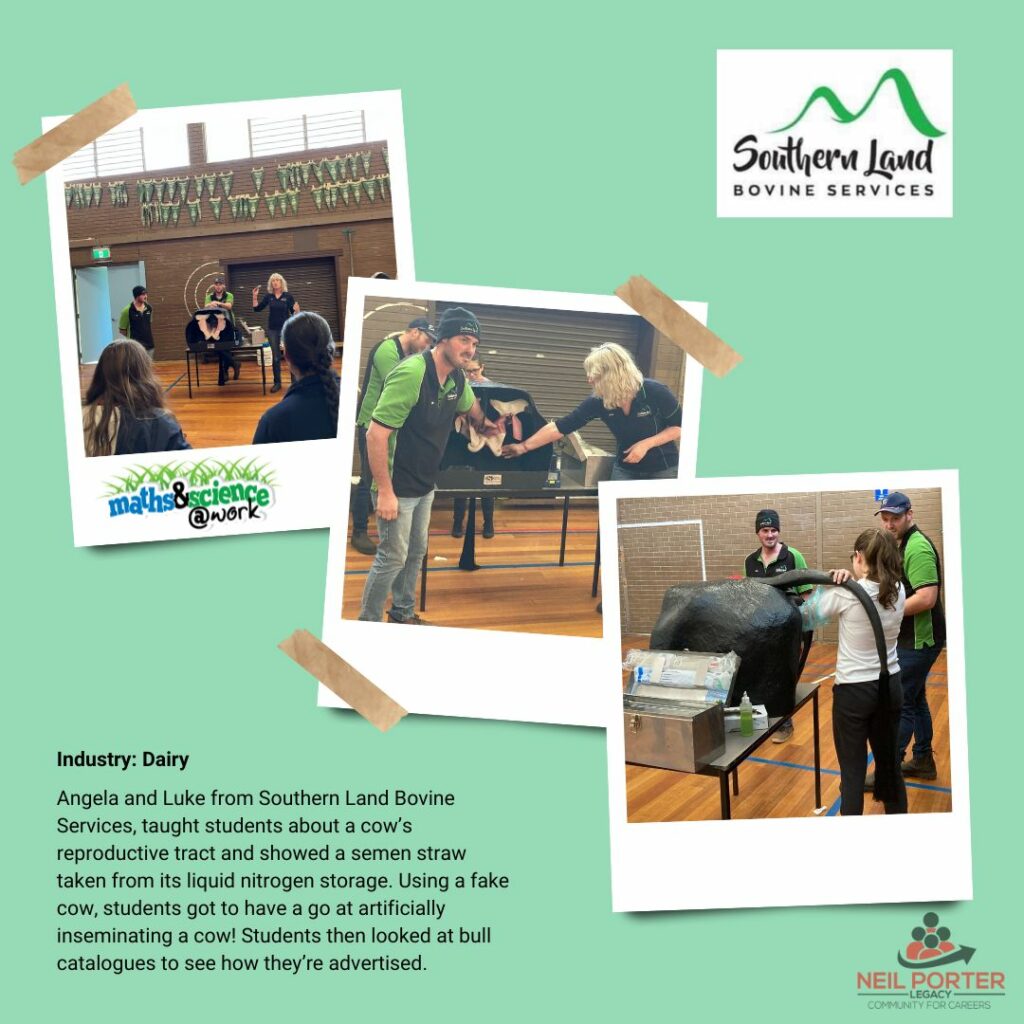
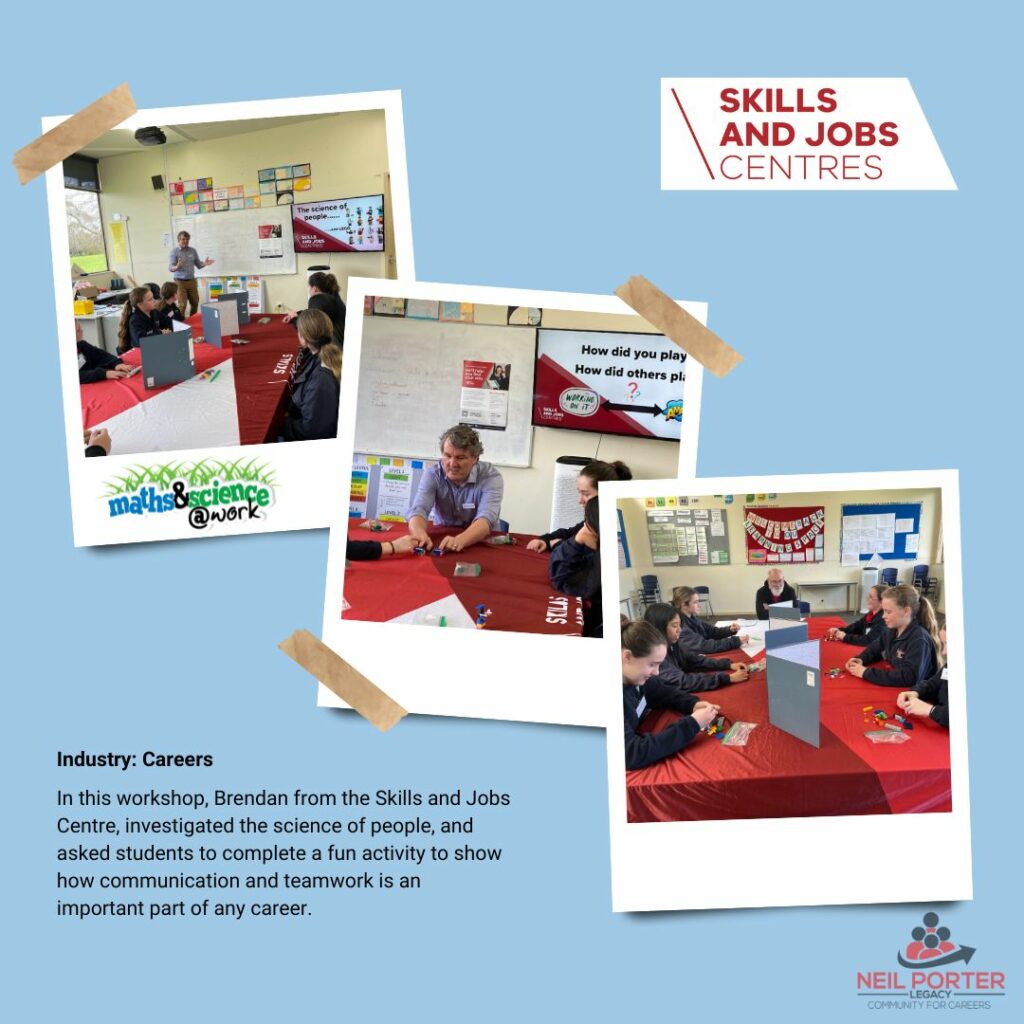
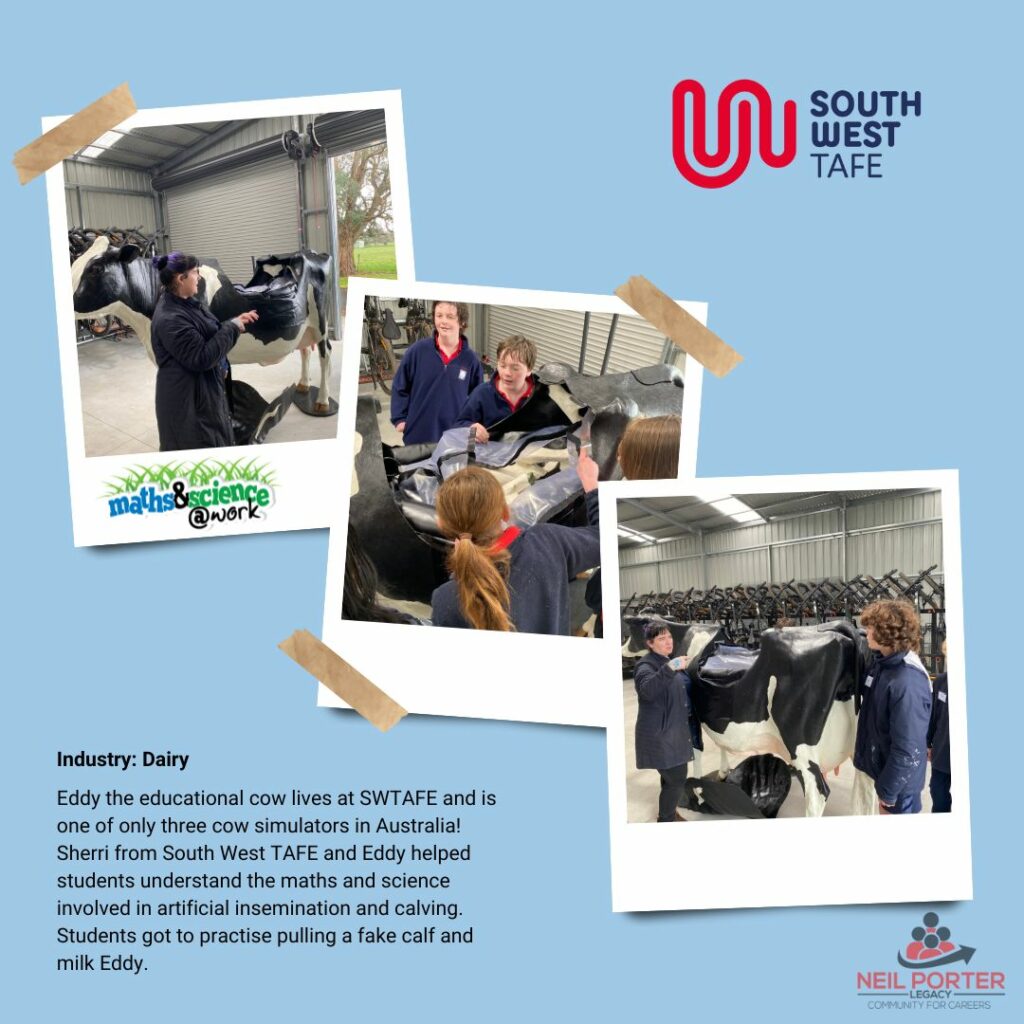
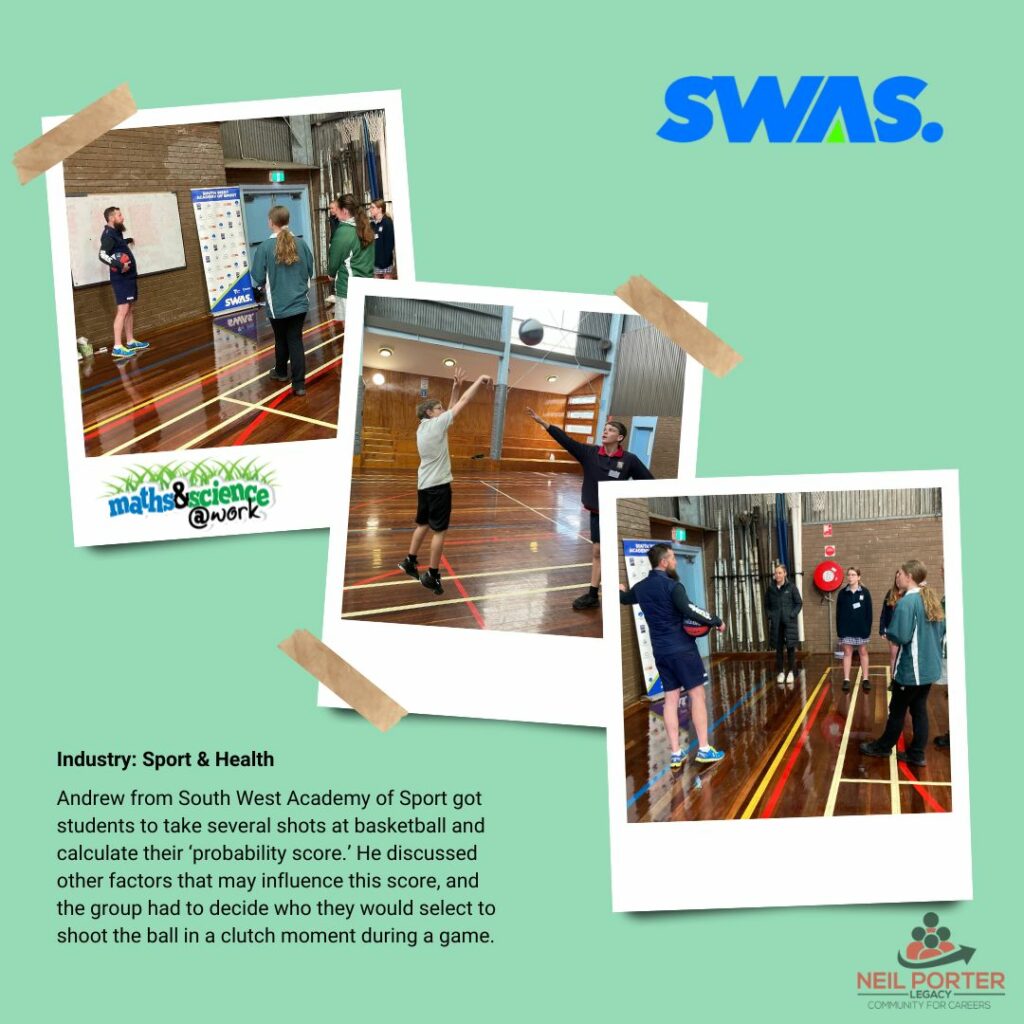
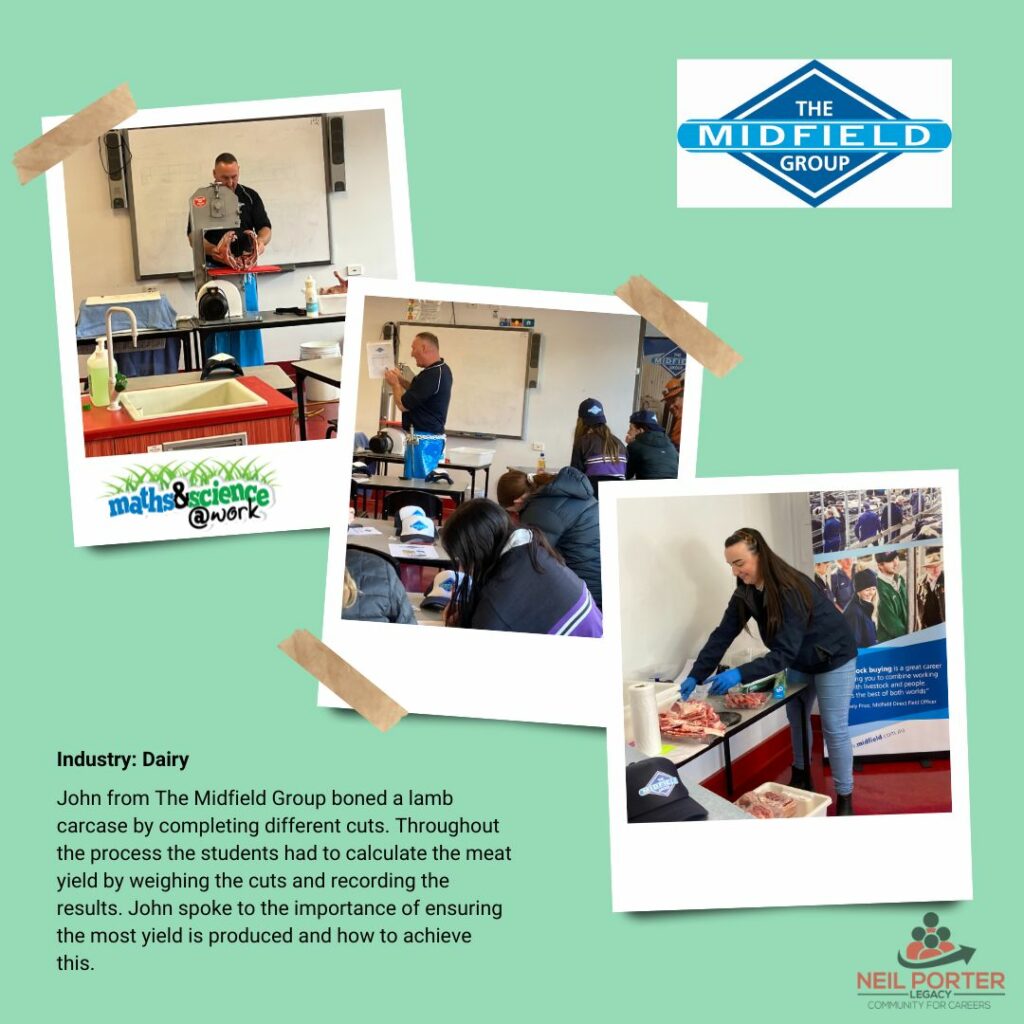
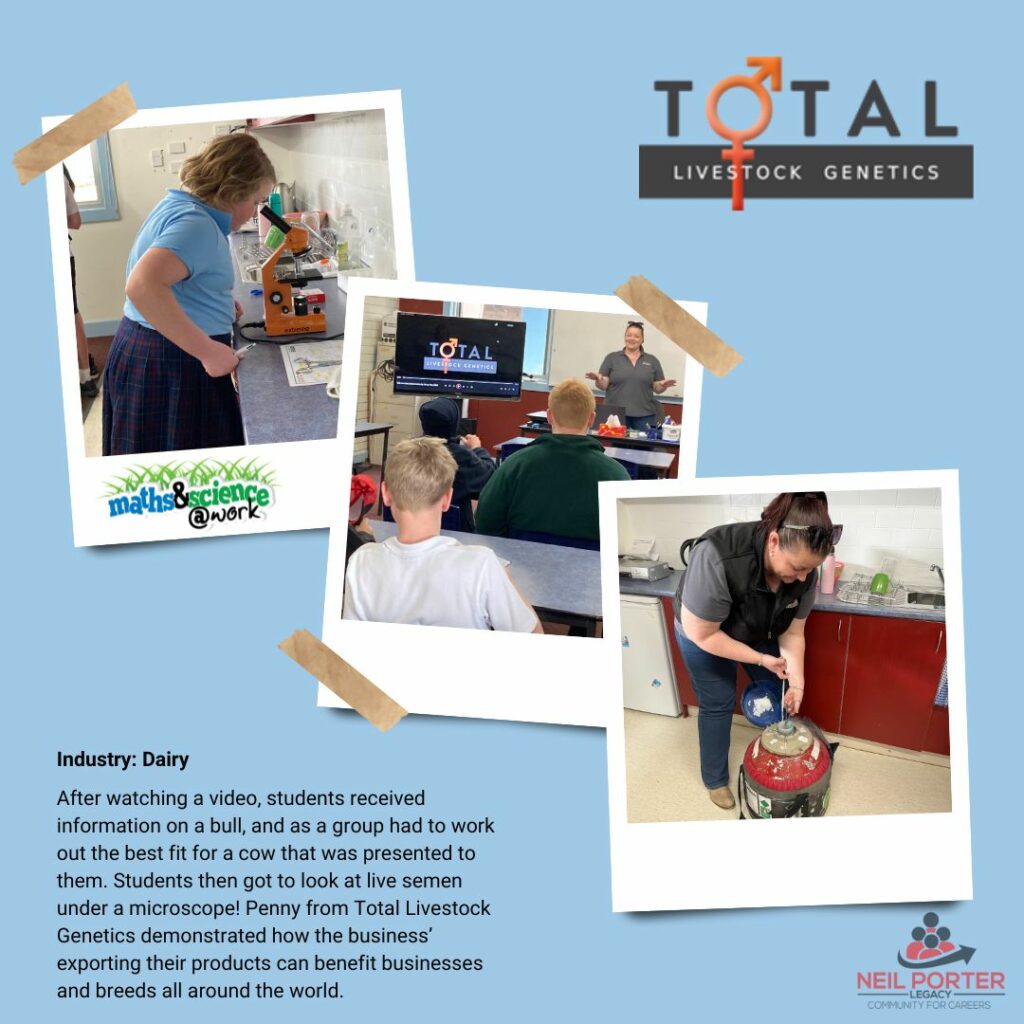
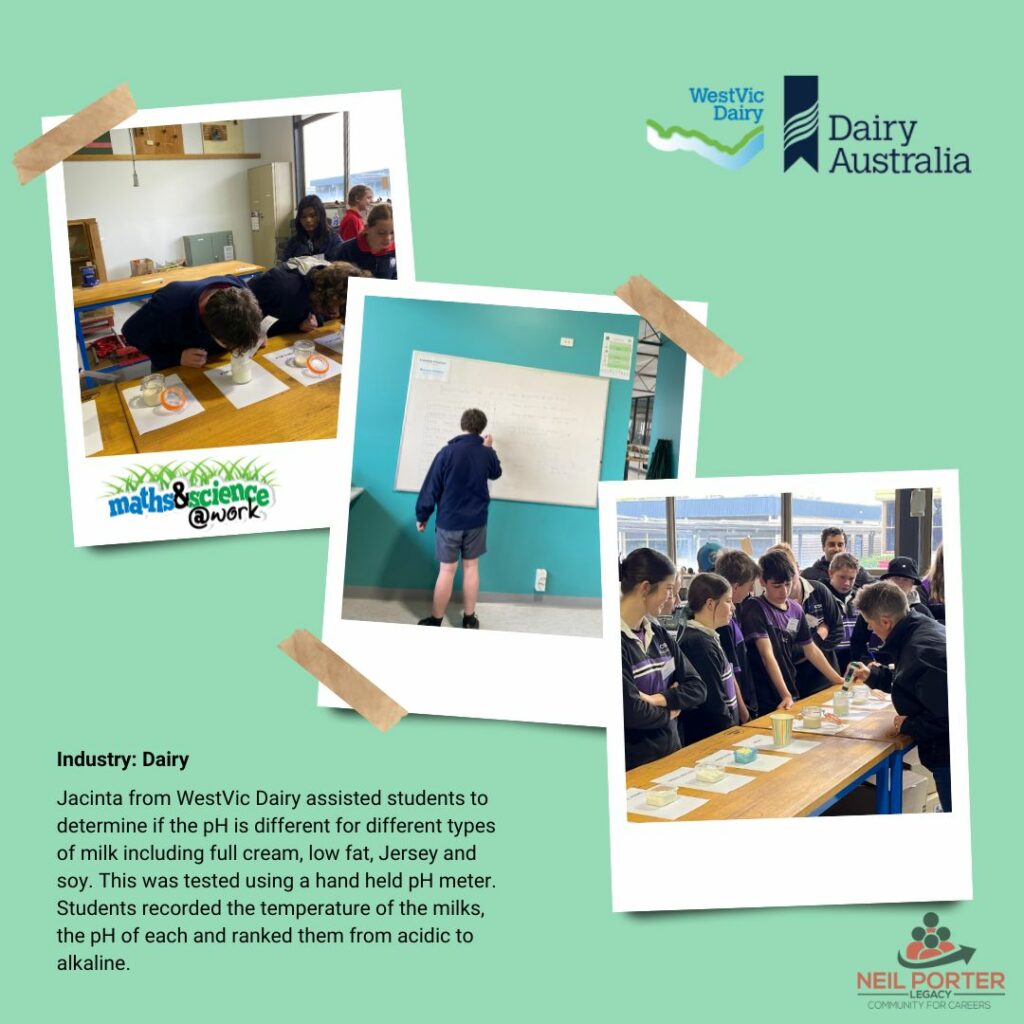
Here are descriptions of the amazing workshops the industry members ran:
Industry: Traffic Management
Presenter: Mel Ruediger, senior supervisor & operations co-ordinator at Toot Traffic
Everyone has seen roadworks being undertaken, but have you considered the preparation and measures taken to ensure the roadworkers are safe and that traffic can continue to flow while the works are taking place? Mel from Toot Traffic displayed a traffic management plan and highlighted important considerations when creating one. She will discussed the maths in determining how long and far it takes a vehicle to stop from different speeds and how this affects the spacing of speed limit signs leading up to road works. Students created their own small-scale traffic management plans using miniature road signs.
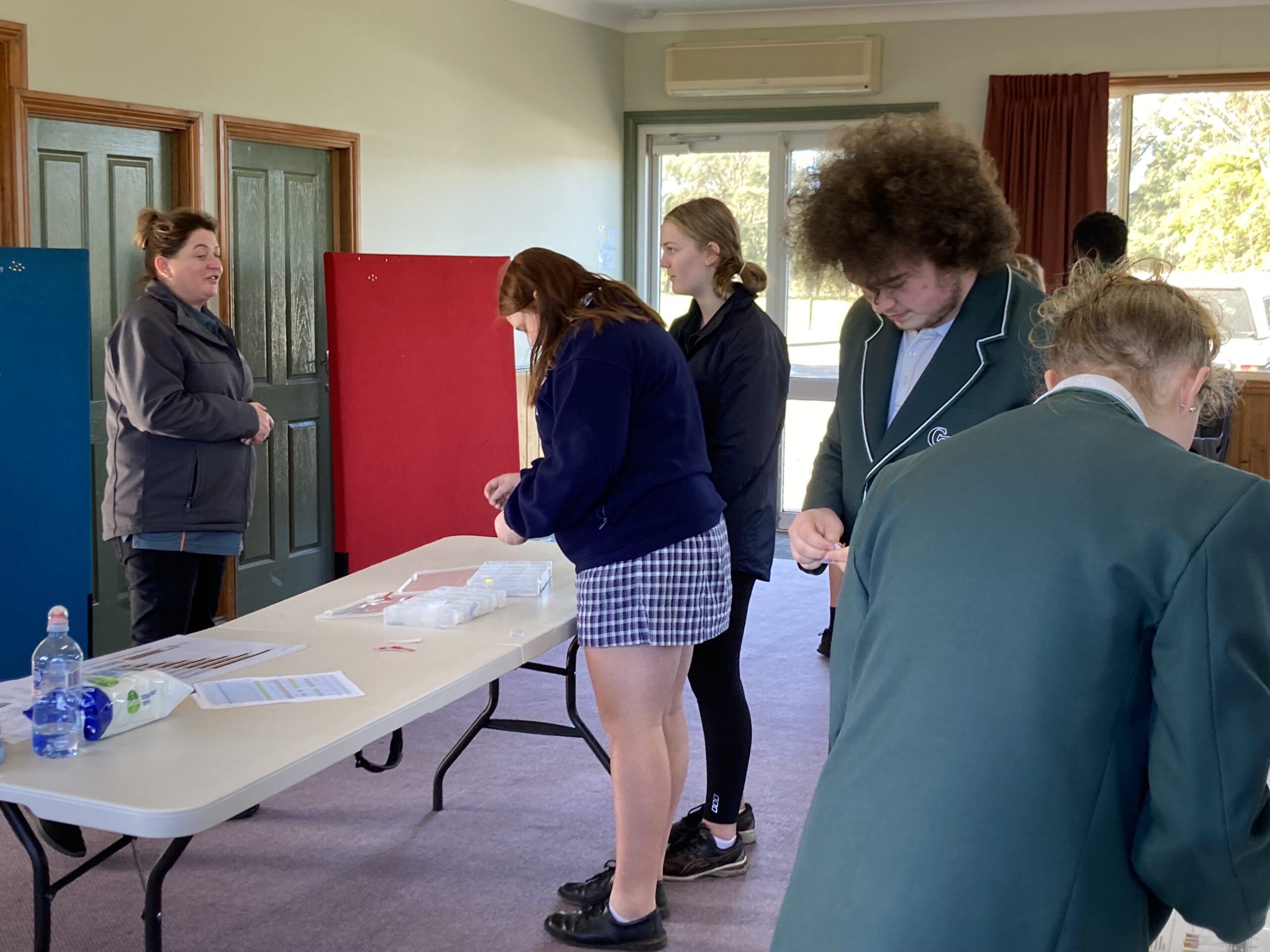
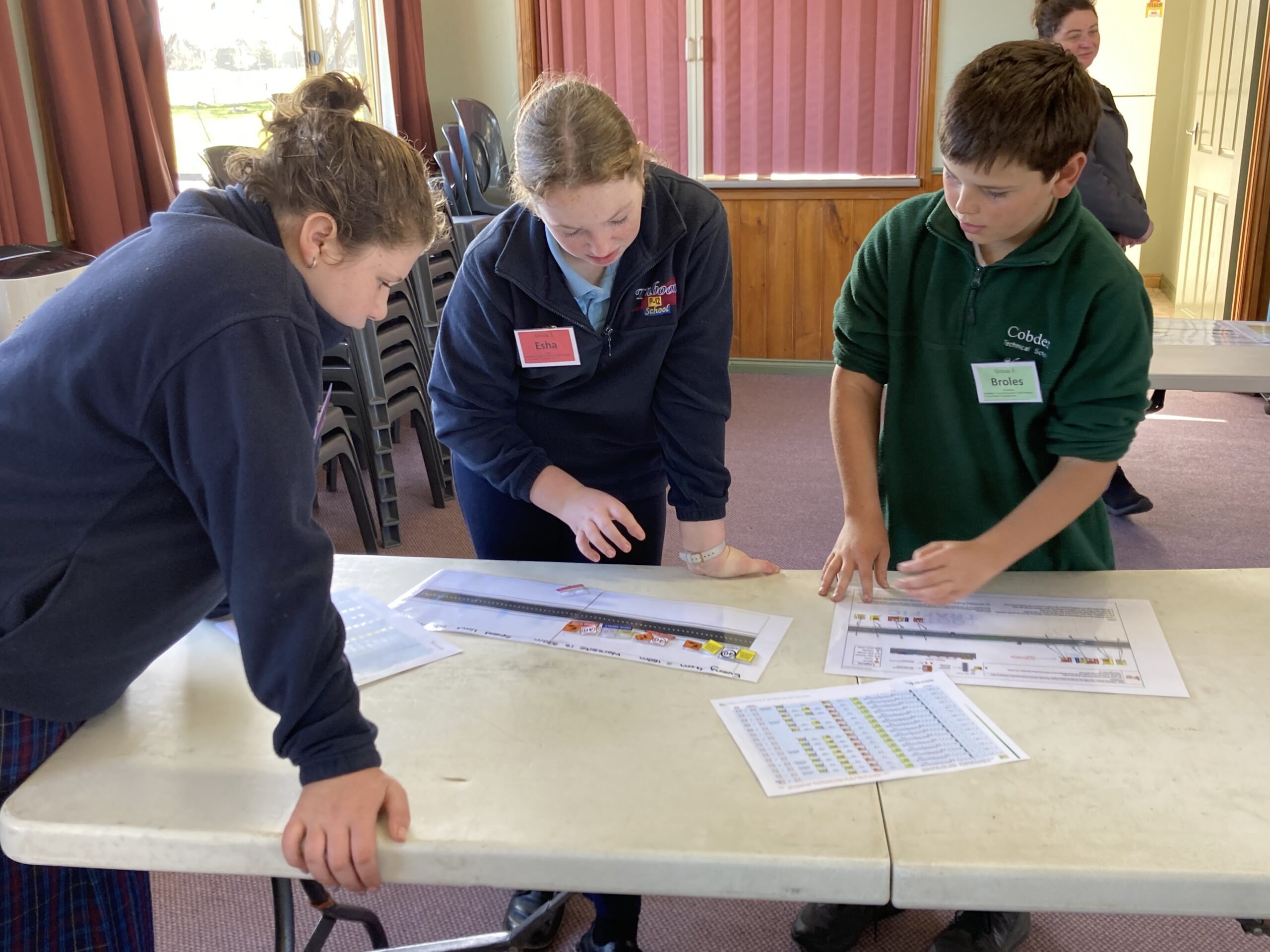
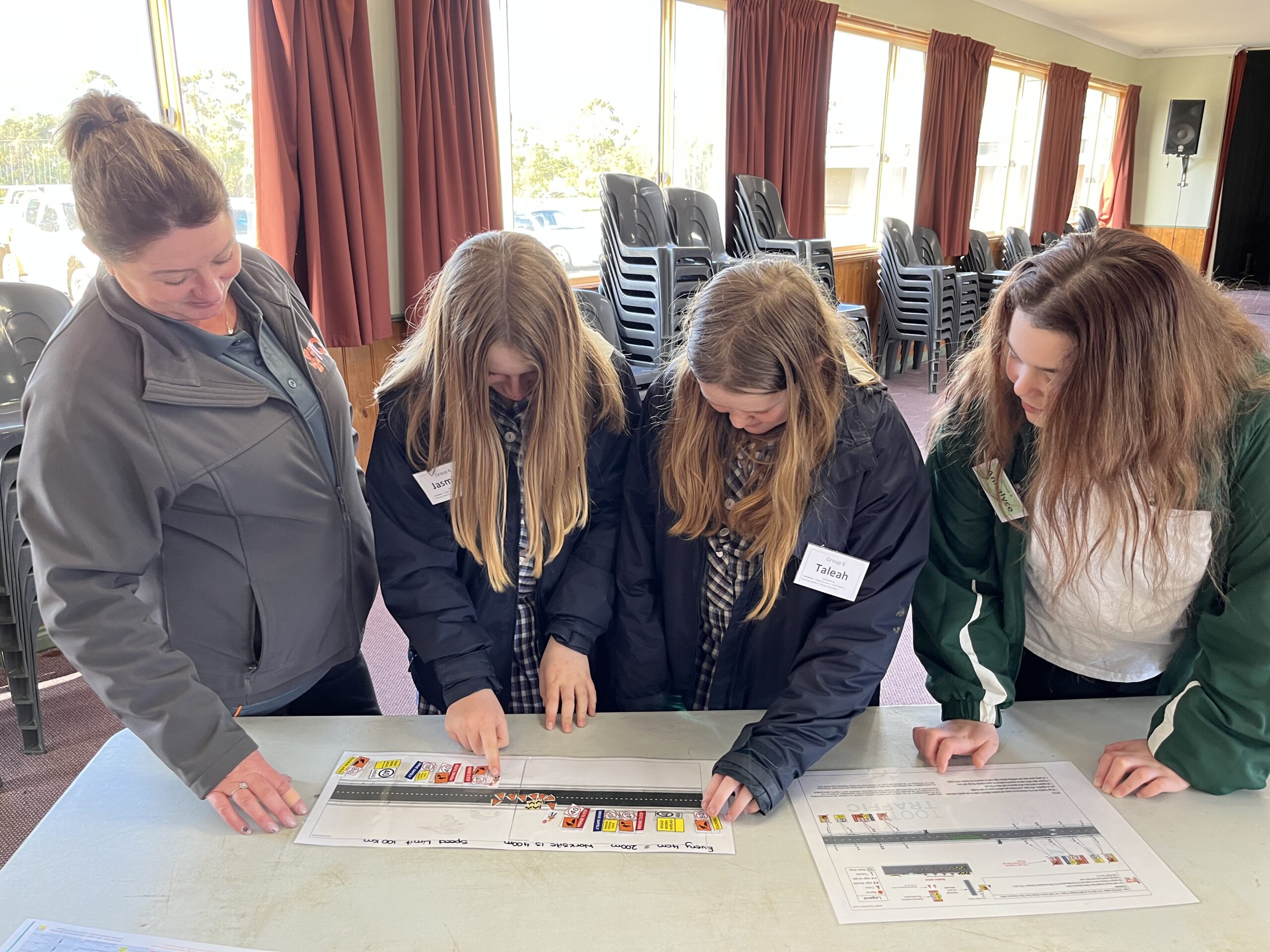
Industry: Dairy
Presenter: Ben Boyd, Ridley Agriproducts
Your body is like a car and healthy food is the fuel that powers you. A dairy cow is much bigger than you and they need a different type of fuel to power them. Ben from Ridley Agriproducts explained the nutritional requirements of a lactating dairy cow. Students completed a nutrient requirement sheet and by completing different calculations. Ben provided the ingredients of a typical dairy cow’s daily ration and explained each one. The students then measured the ingredients according to their nutritional requirement sheet and mixed them together.
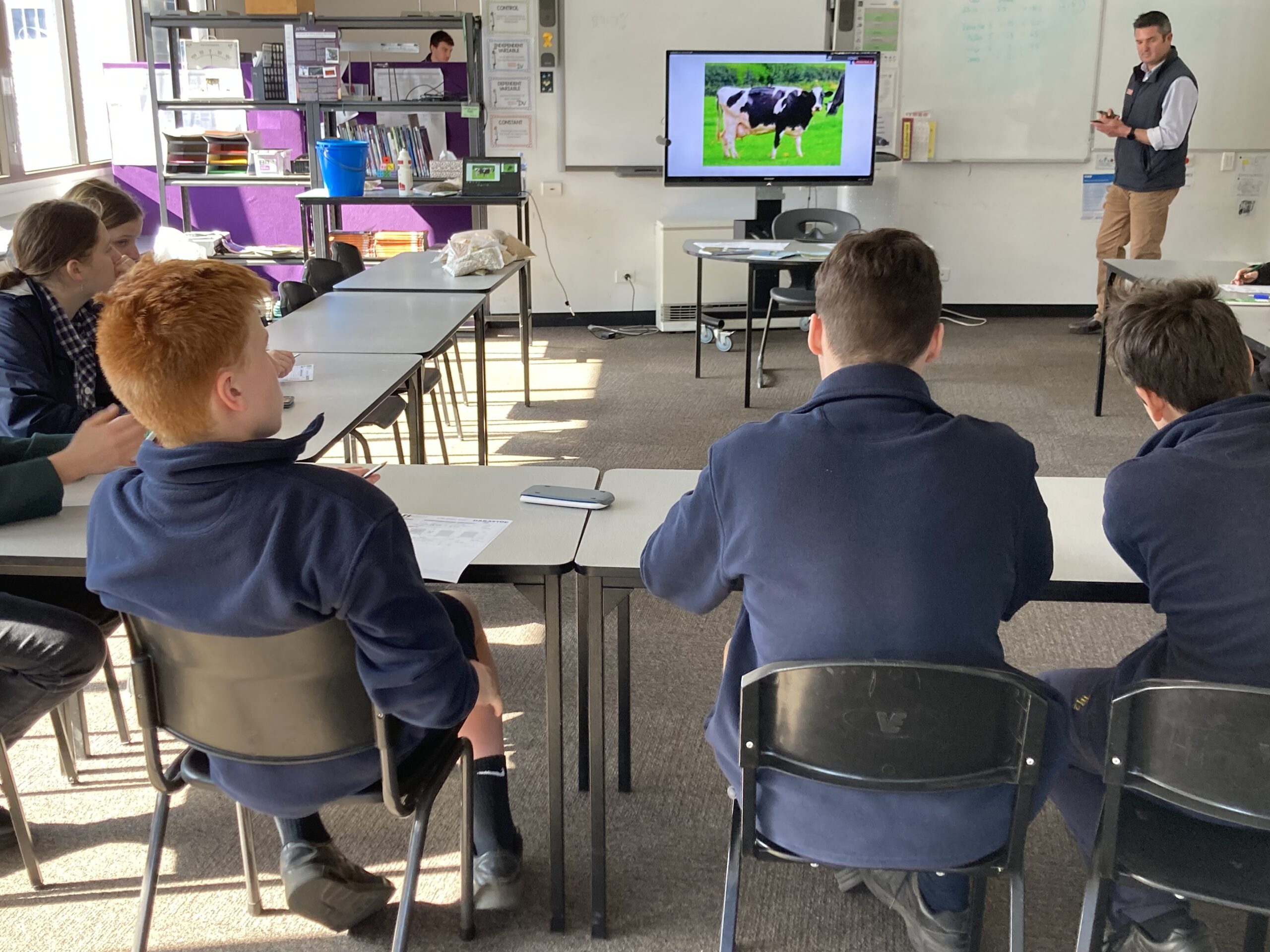
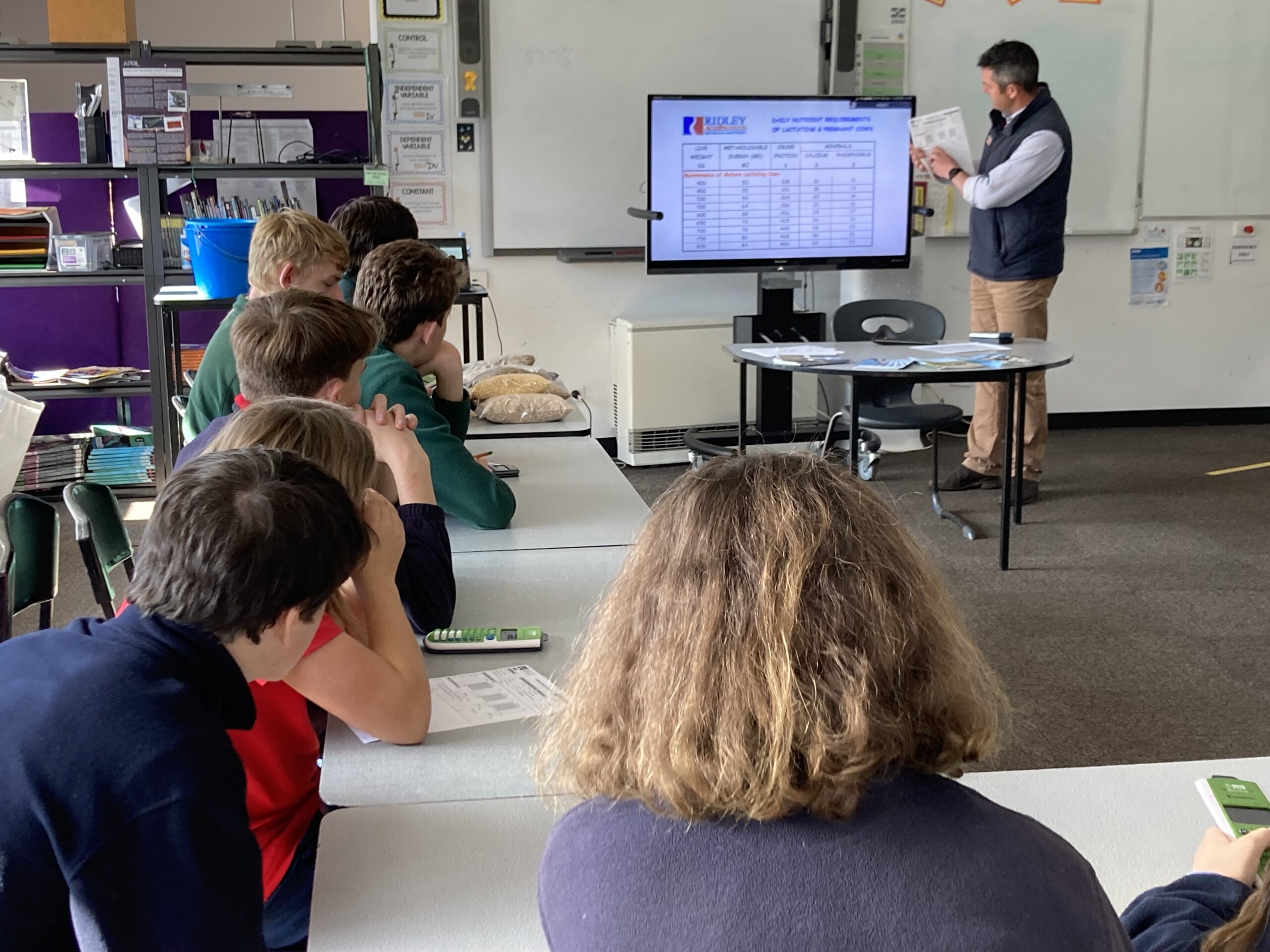
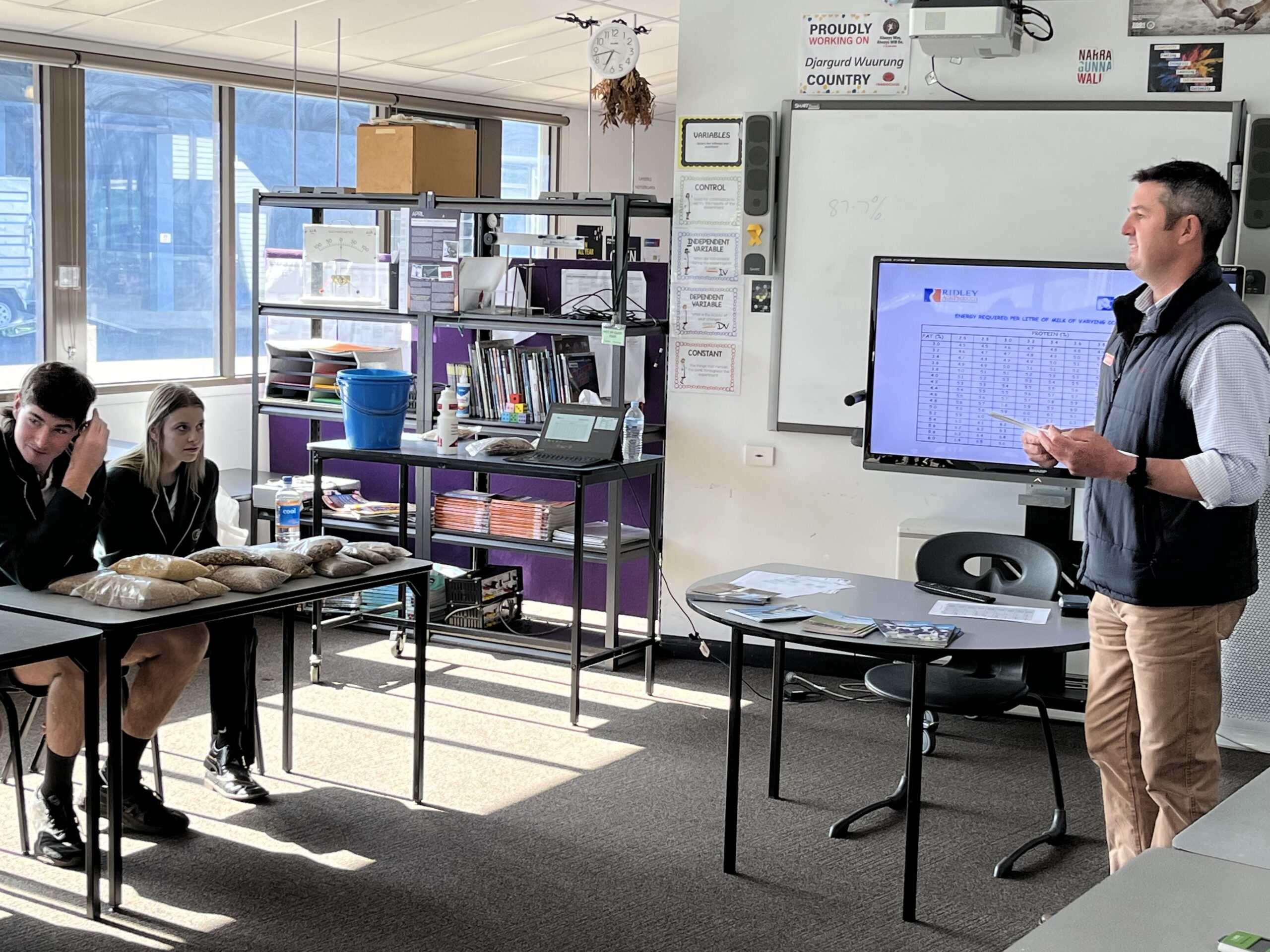
Industry: Water
Presenter: Deirdre Murphy, Regional Citizen Science Project Officer, Corangamite Catchment Management Authority
Water quality is important to everyone. The CCMA’s Waterwatch Program gives the community better knowledge about water issues and encourages water quality monitoring groups to undertake constructive action. Waterwatch volunteers provide water quality data from waterways across Victoria. The data is used to monitor waterway condition and assess whether change (positive or negative) is occurring. Students completed a water test on a sample from the Curdies River. They tested for salinity, pH and clarity and compared their results with water quality condition ratings.
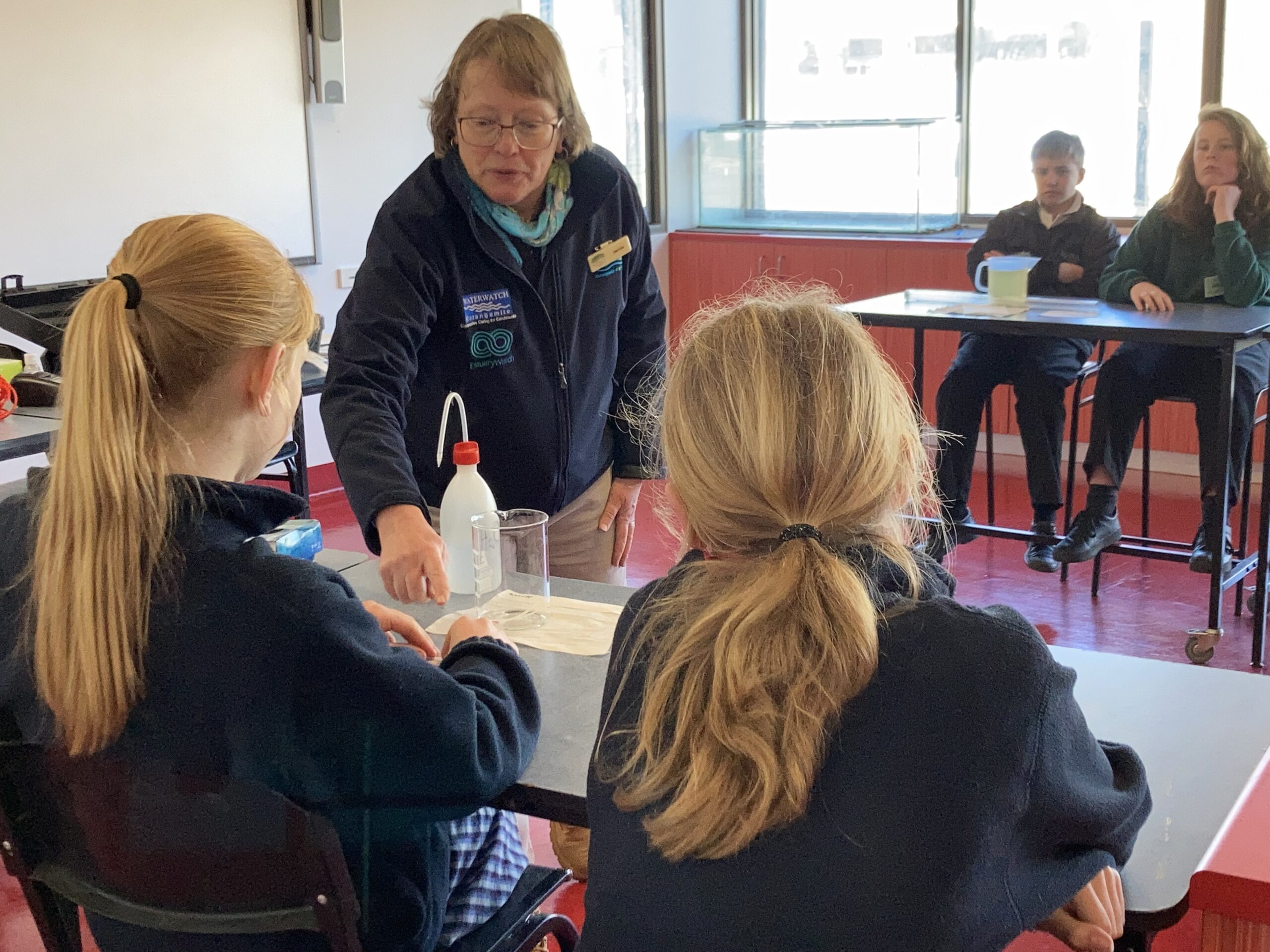
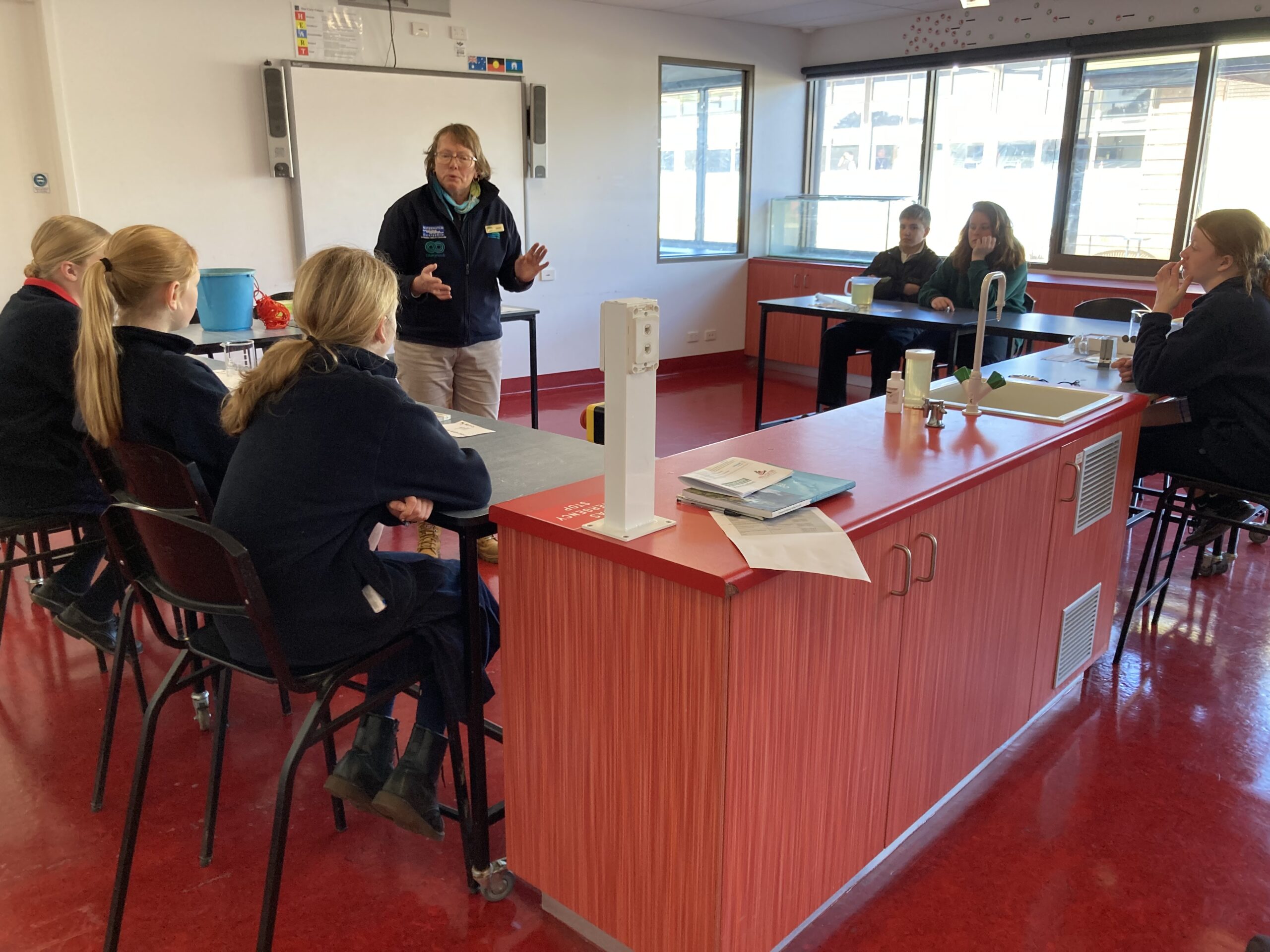
Industry: Nursing
Presenter: a member of the Mentor of Deakin Squad (MoD Squad)
Deakin University offers nursing courses and students in this workshop heard from health students about how different medical equipment works and what each piece is used for. The students also got to have a go at the equipment including oxygen meters and stethoscopes. The oxygen meters were worn while the students exercised and they saw how the movement changed their oxygen levels. Students also observed how nurses record data.
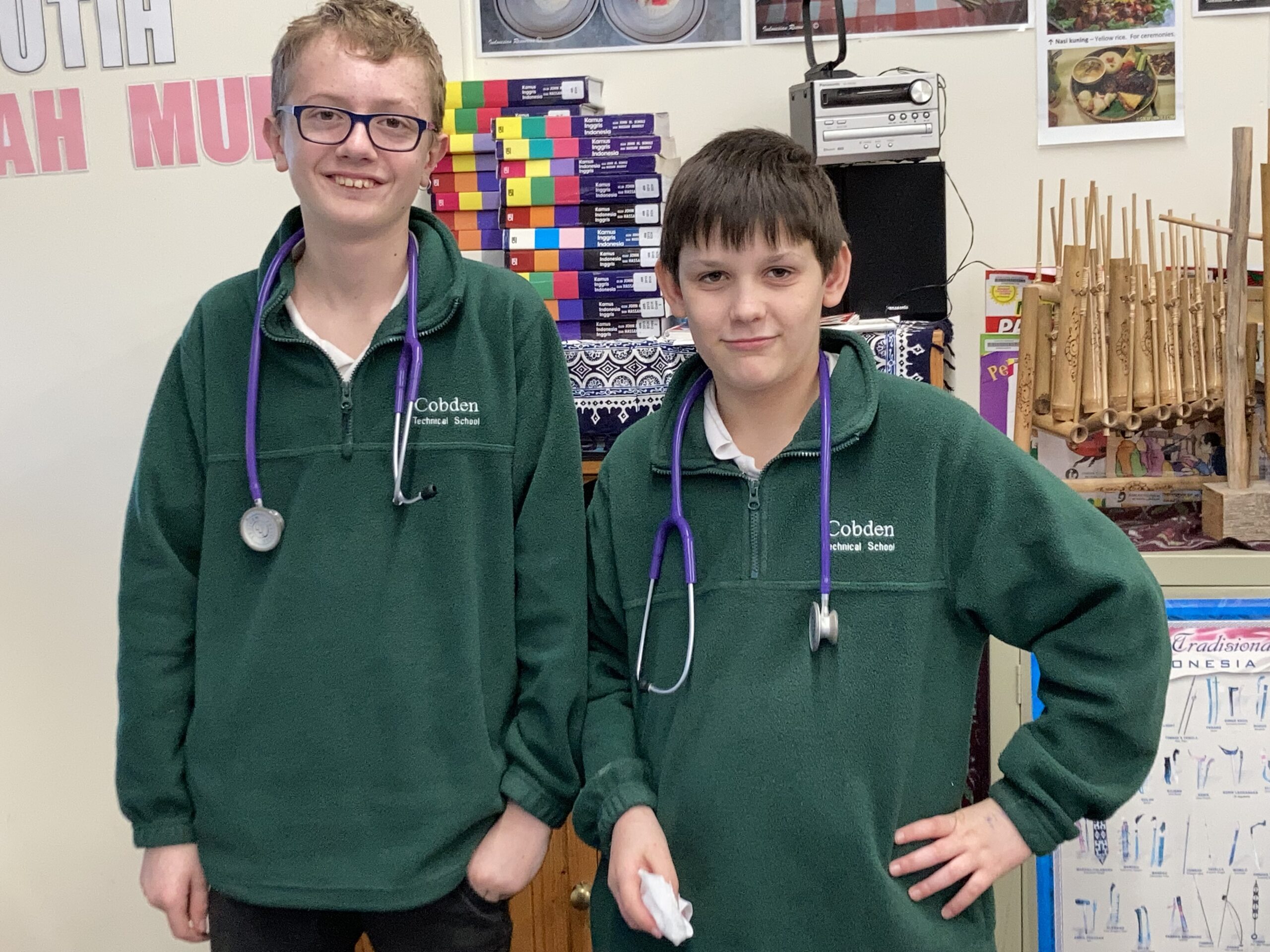
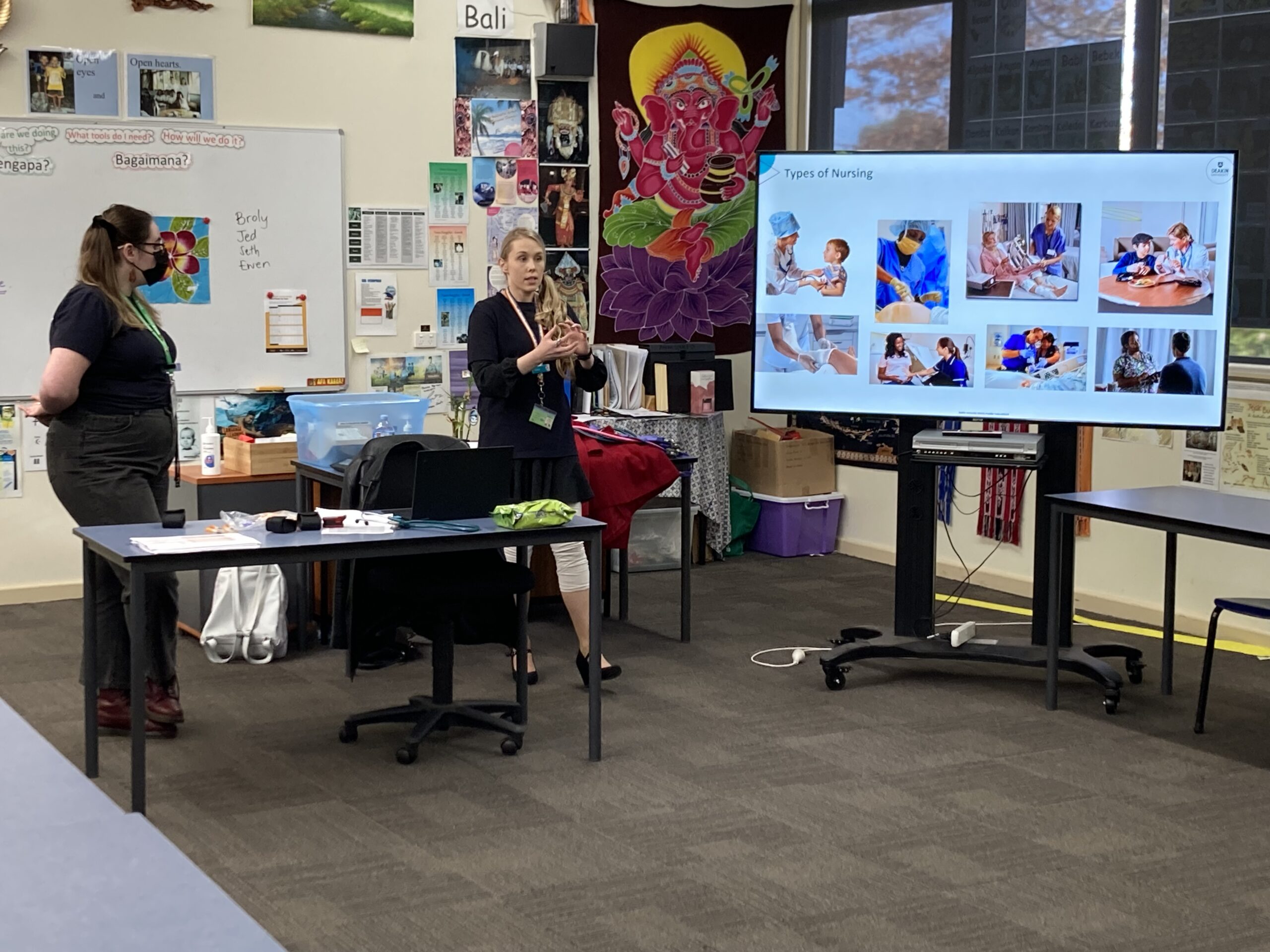
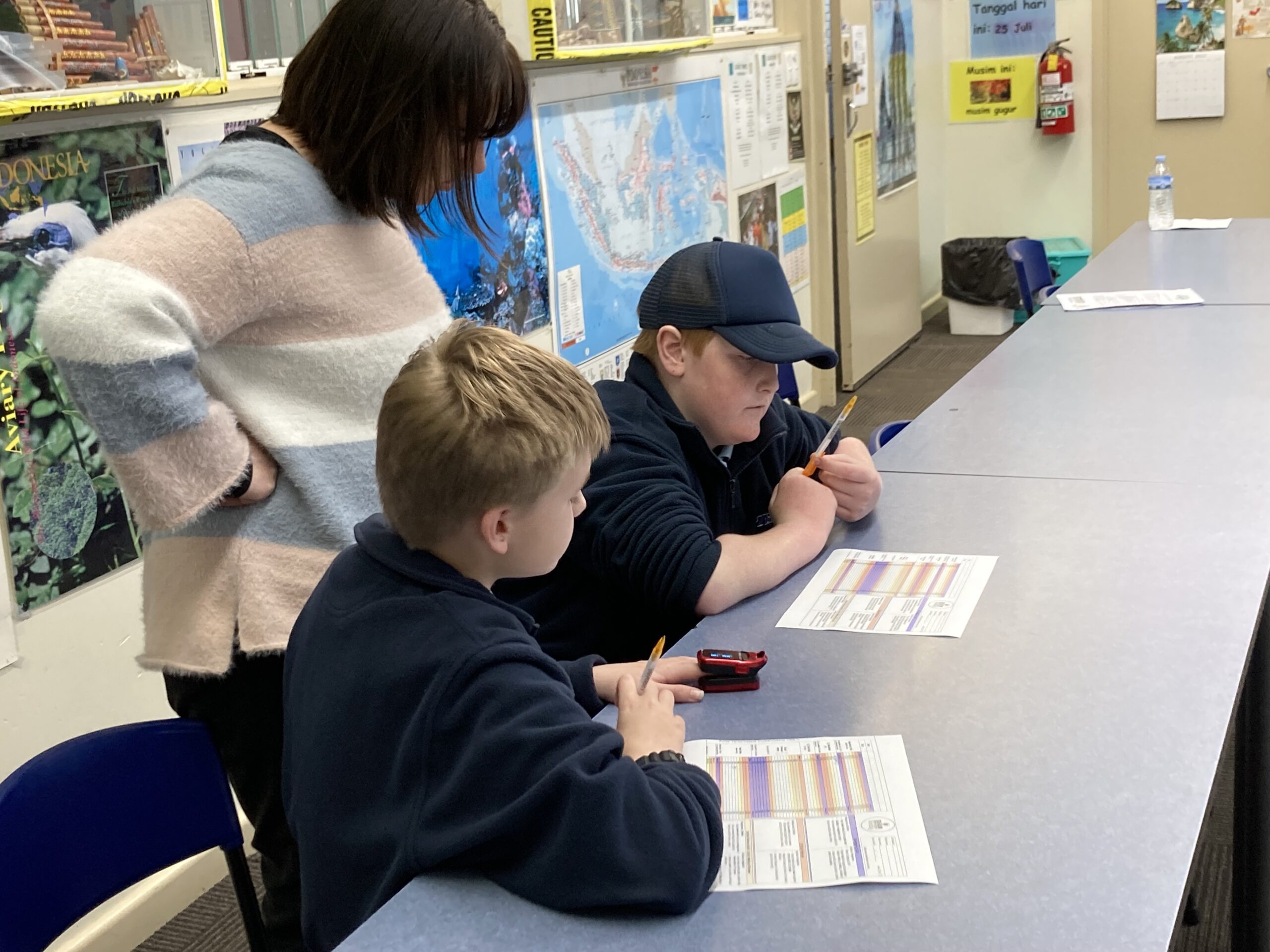
Industry: Environmental Science
Presenter: a member of the Mentor of Deakin Squad (MoD Squad)
Students met Deakin University students who work, study and volunteer with Little Penguins. They found out about the Little Penguins that call Warrnambool home and then designed and created a penguin box for the future South West Penguin Colonies.
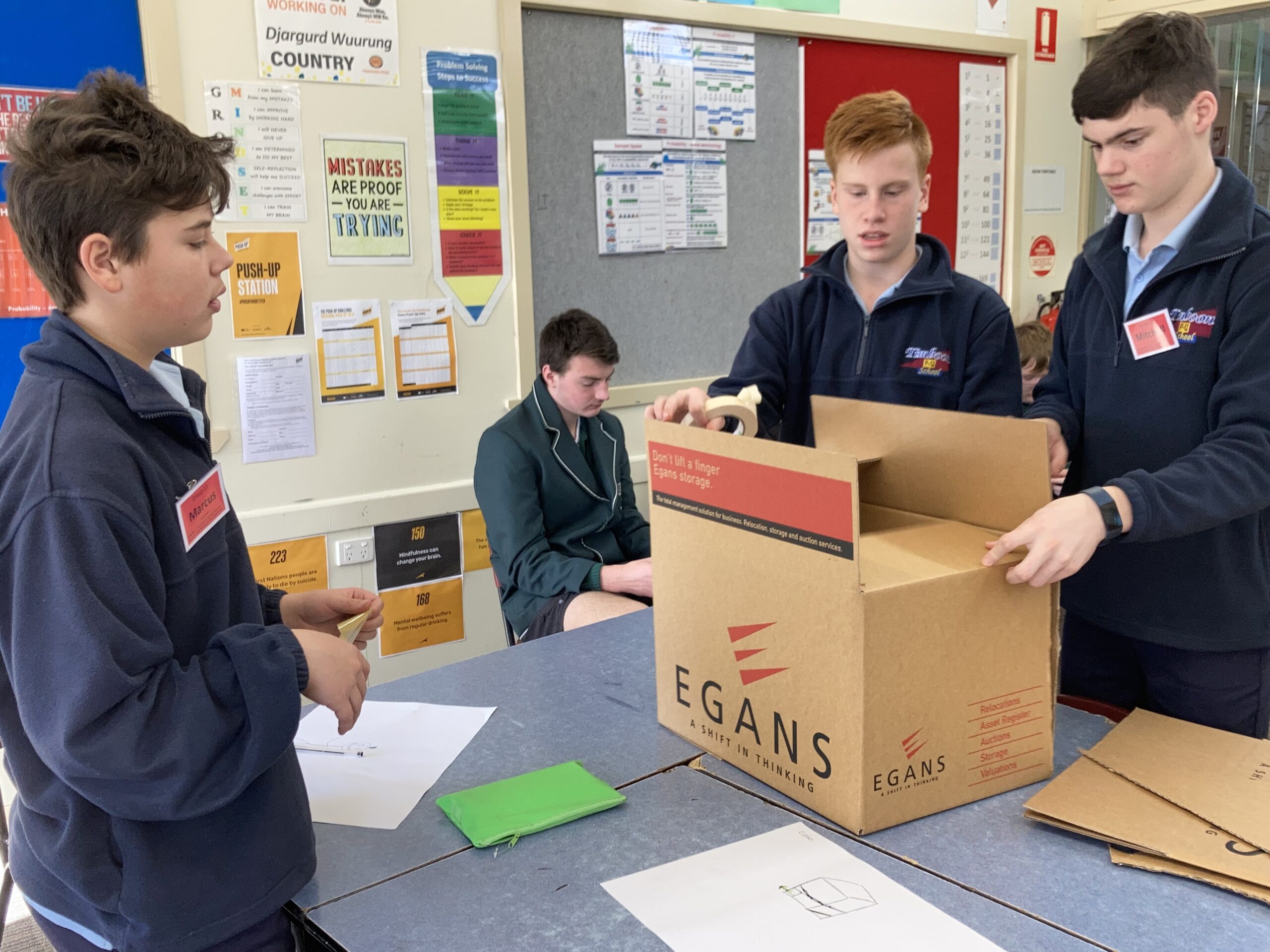
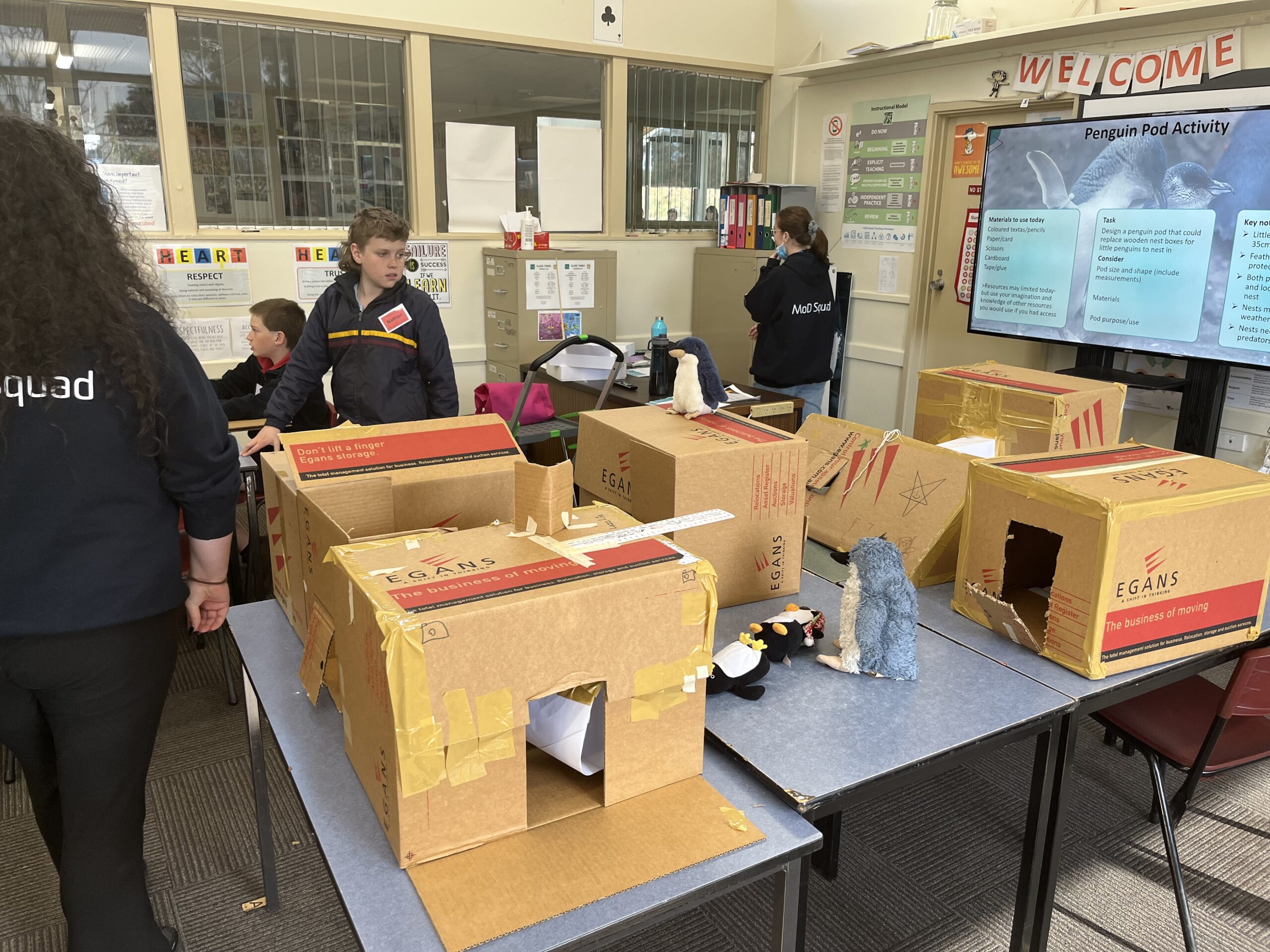
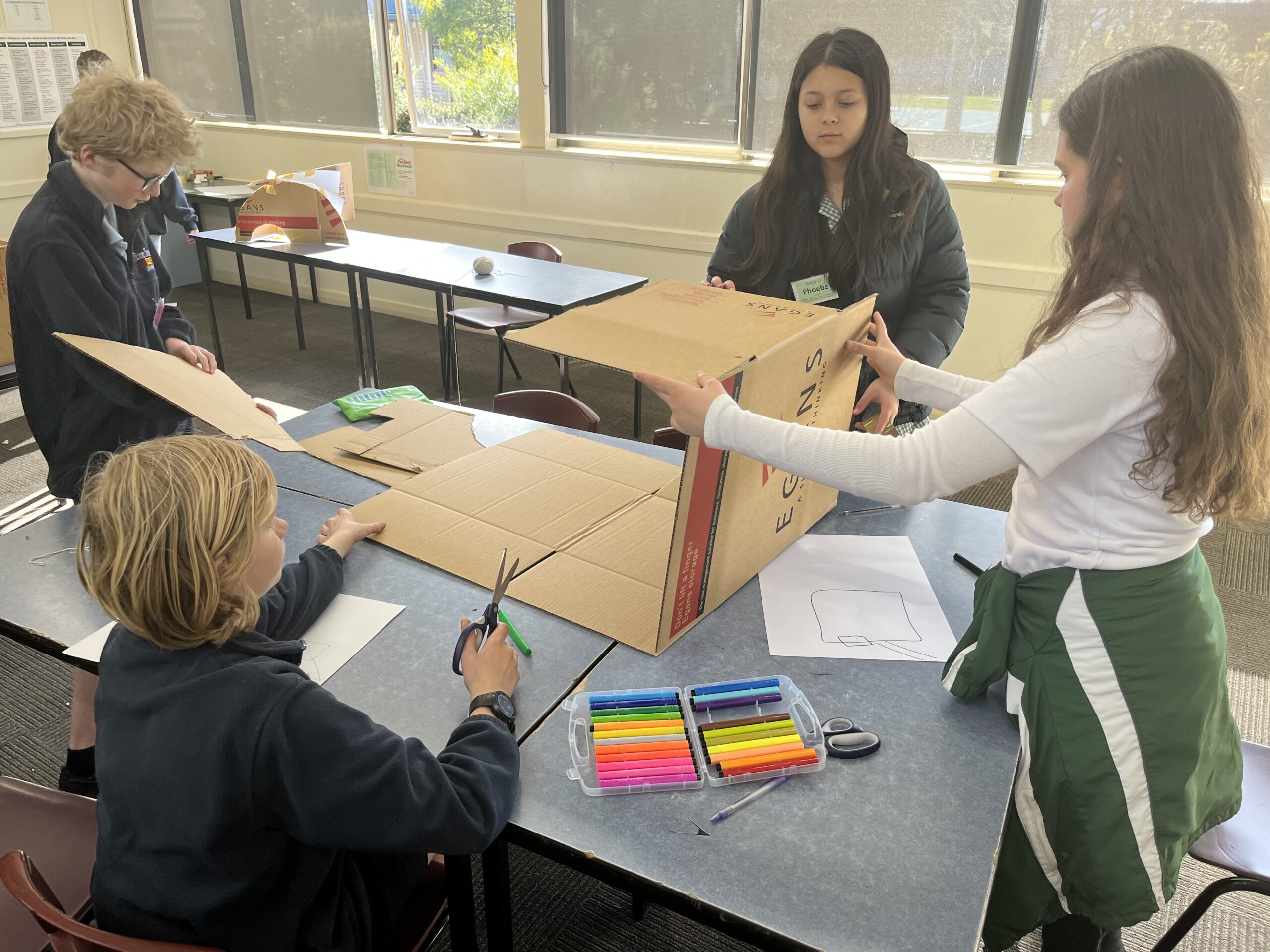
Industry: Dairy
Presenter: Rebecca Toleman, Teacher of Agriculture: Land, Food and Fibre
Eddy the Educational Cow lives at SWTAFE and is one of only three cow simulators in Australia! Rebecca and Eddy helped students understand the maths and science involved in artificial insemination and calving. This included the maths of how long an egg is fertile for. Students then practised pulling a fake calf and completing the various checks necessary.
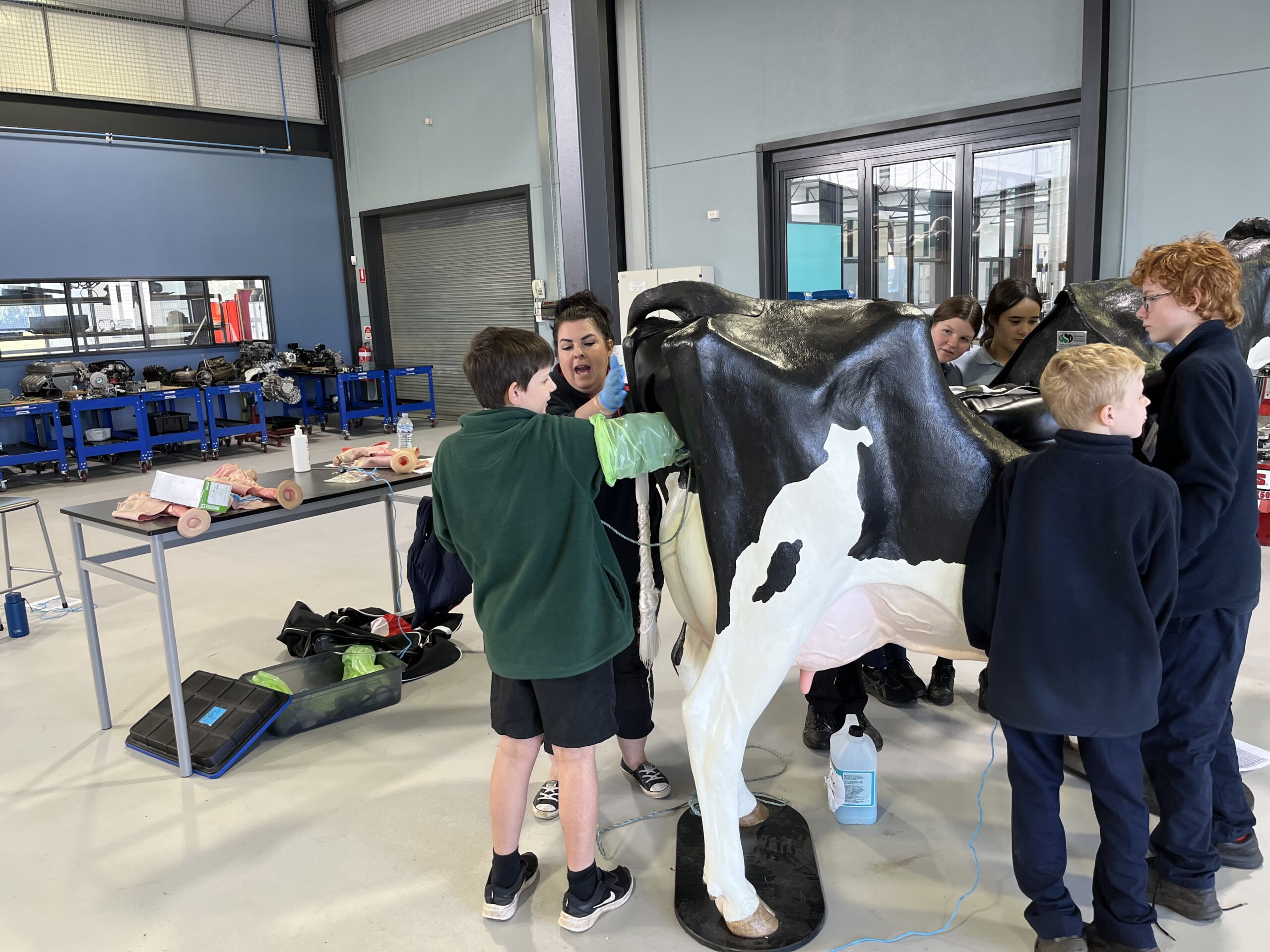
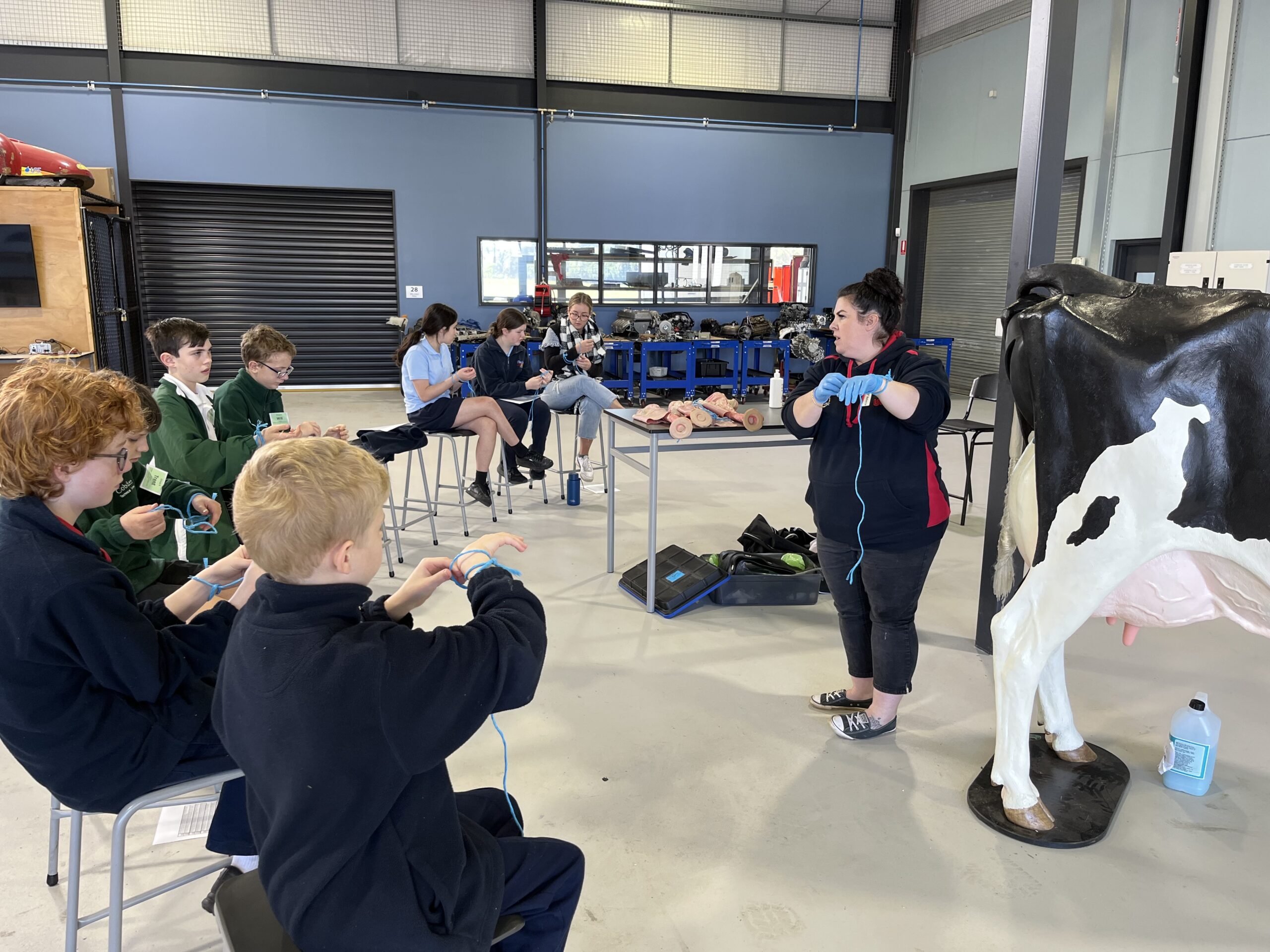
Industry: Dairy and Technology
Presenter: Tania, Every Cow
Every Cow Australia’s animal monitoring technology (cow collars) is used by farmers to create real-time data of each cow. This data enables the farmers to increase production, reproduction and profitability. Tania showed students the data cow collars produce and discussed how the technology works, including relaying data to receiving antennae. Students were then shown a scale outline of a farm on the ground and used the maths and specifications Tania had given them to determine the best place to position the receiving antennae. Students also saw how cow collars give farmers data that enable them to determine when a cow is best-suited for artificial insemination and used the same maths to calculate the best time for a particular cow to undergo AI.
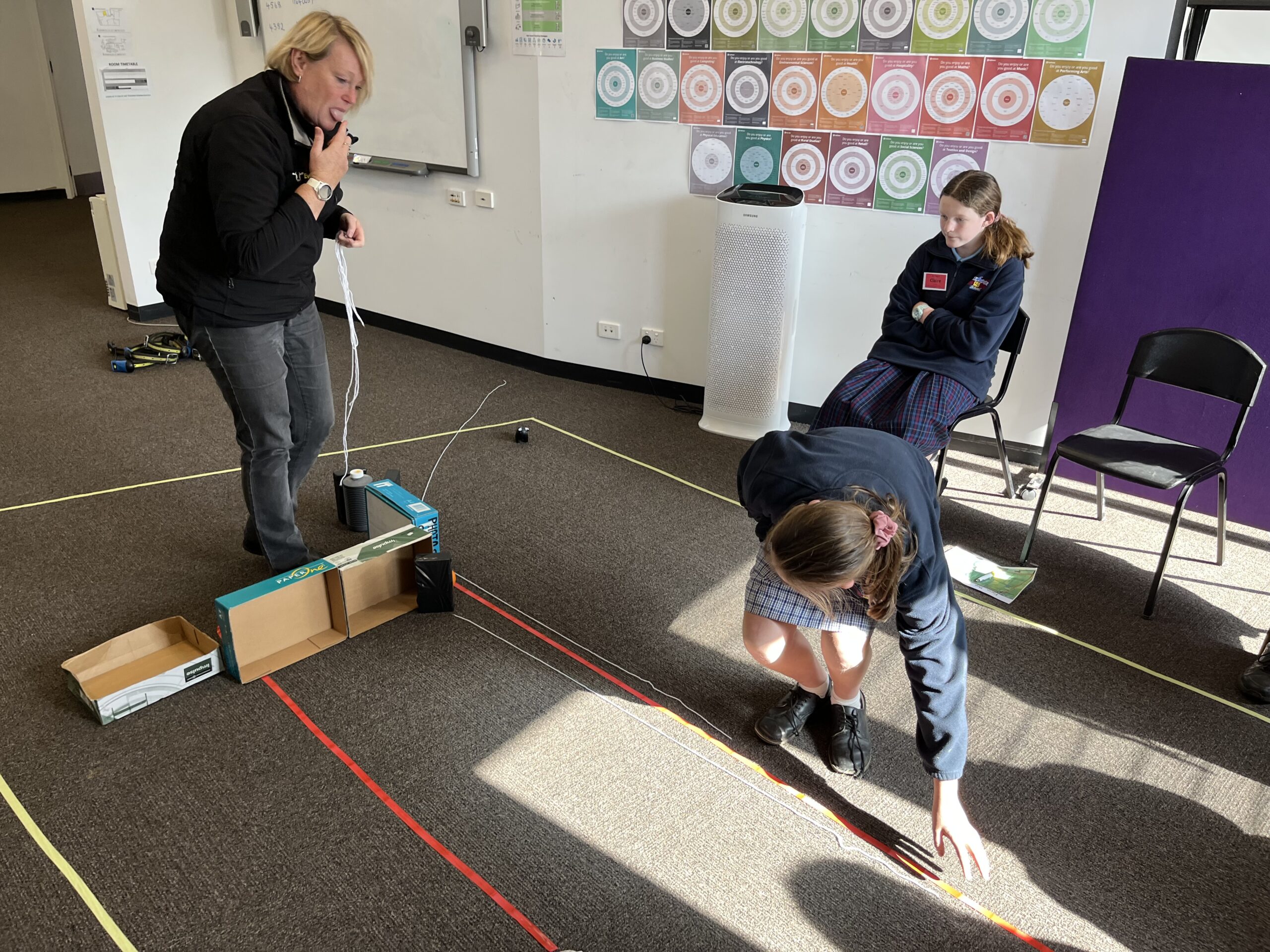
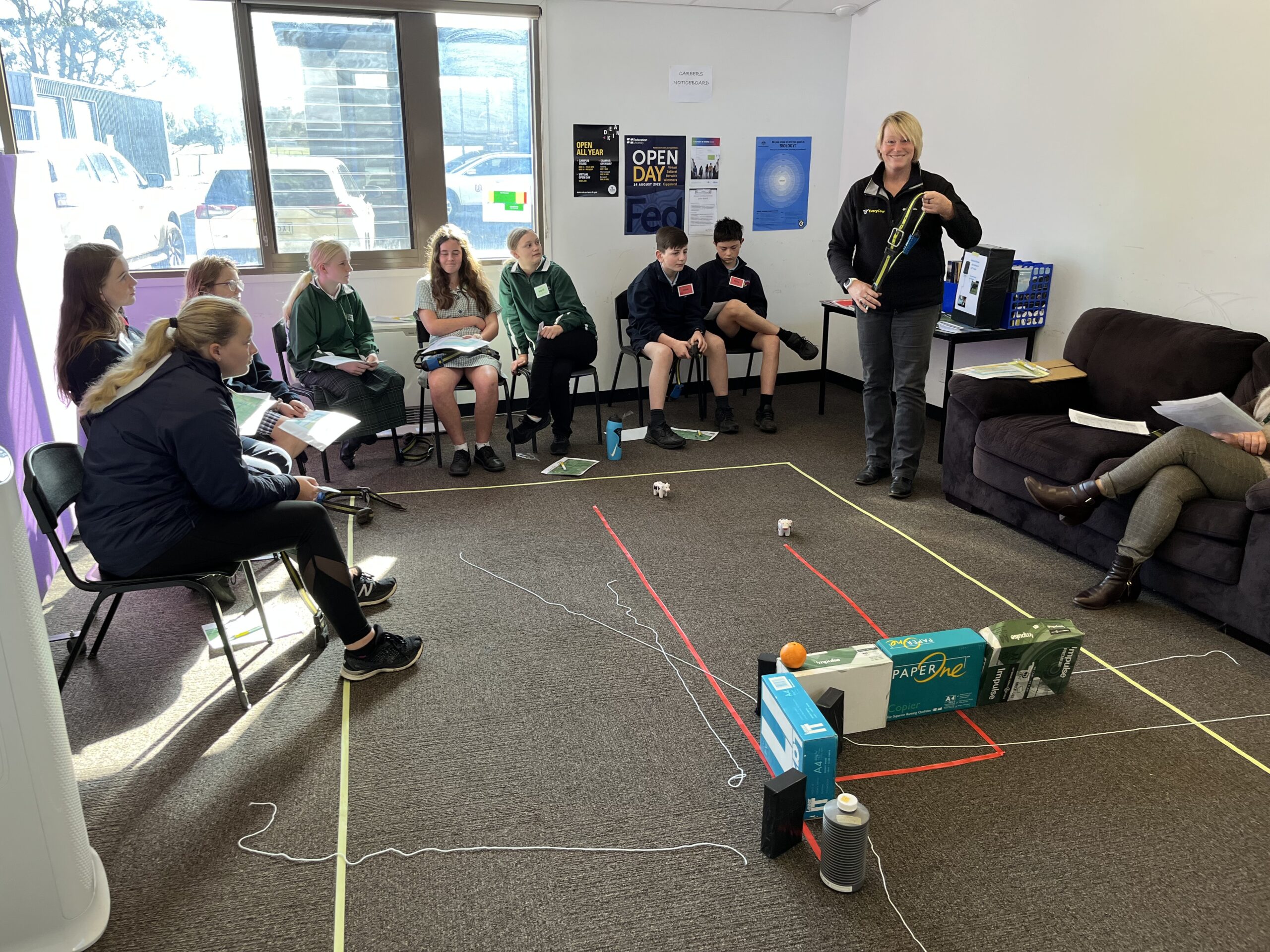
Industry: Environmental Science
Presenter: Ben Marsden, Wannon Water Coordinator Treatment Operations East
Wannon Water has water treatment plants in Portland, Hamilton, Warrnambool and Camperdown. Ben and his team use various methods to remove contaminants from water including the dissolved air flotation and filtration (DAFF) process and coagulation. Treated water is then passed through a filter bed made of anthracite, gravel and sand to help clean and polish the water. Students saw and heard about water treatment processes before being given samples of raw water and a variety of filtering materials. The students were challenged to create different filtering systems and compared the turbidity of contaminated water to water that had passed through their filtration systems.
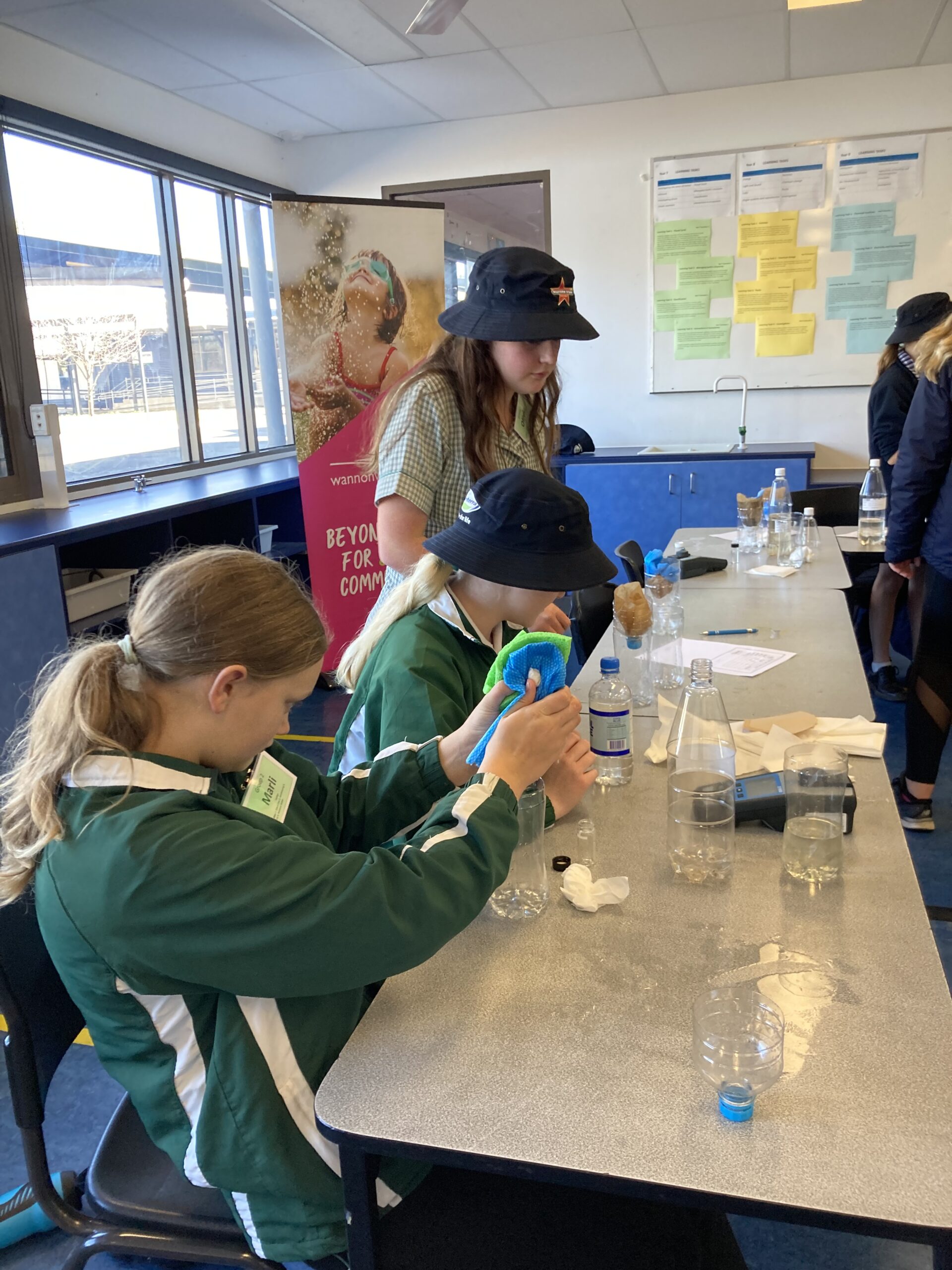
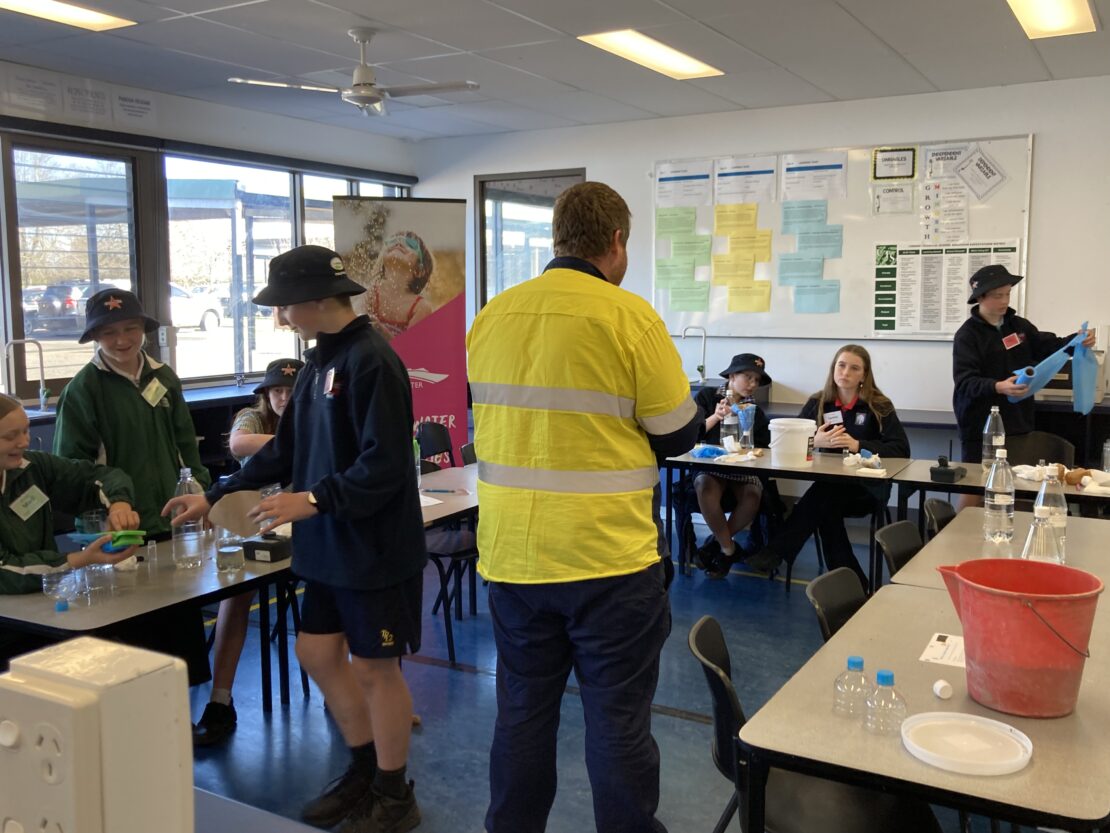
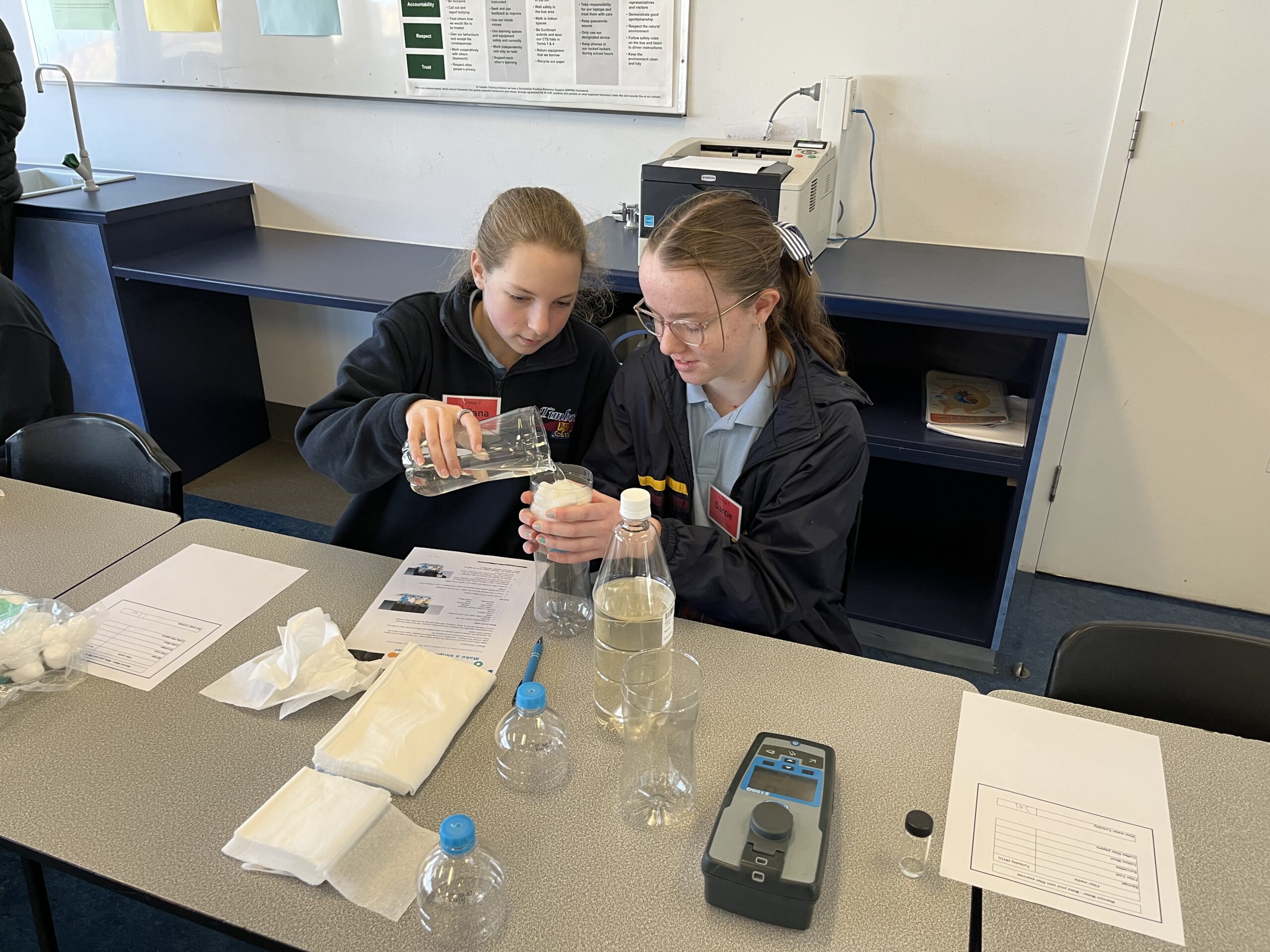
Industry: Emergency Services and Health
Presenter: Chris Stewart, Corangamite Paramedic Community Support Coordinator
Cardiopulmonary resuscitation (CPR) can be a life-saving skill. In this hands-on workshop, students learnt the maths and science of CPR including the forces involved when compressing someone’s chest and the maths of the timing and number of compressions. Students were able to utilise their new knowledge and practise CPR on dummies.
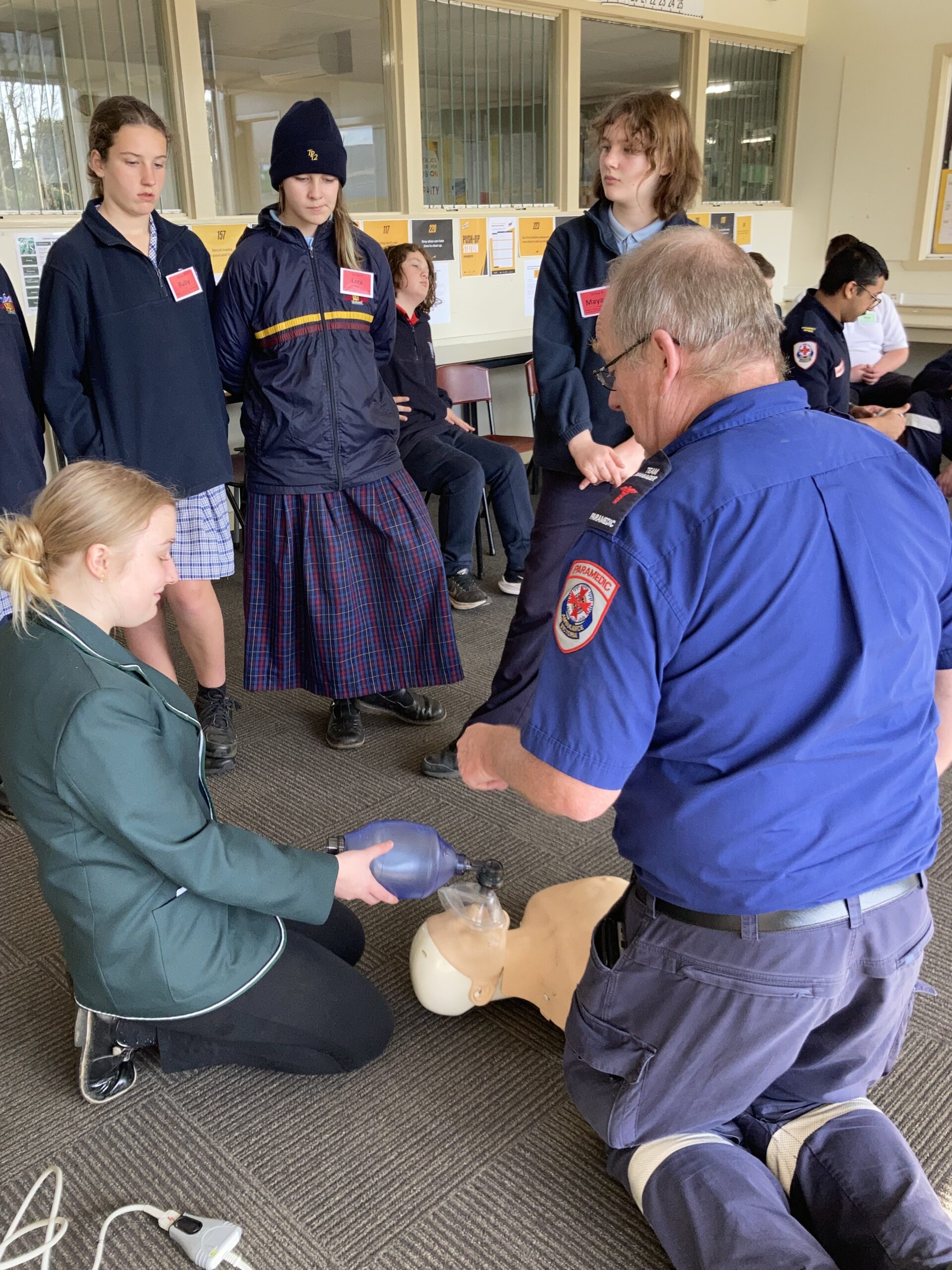
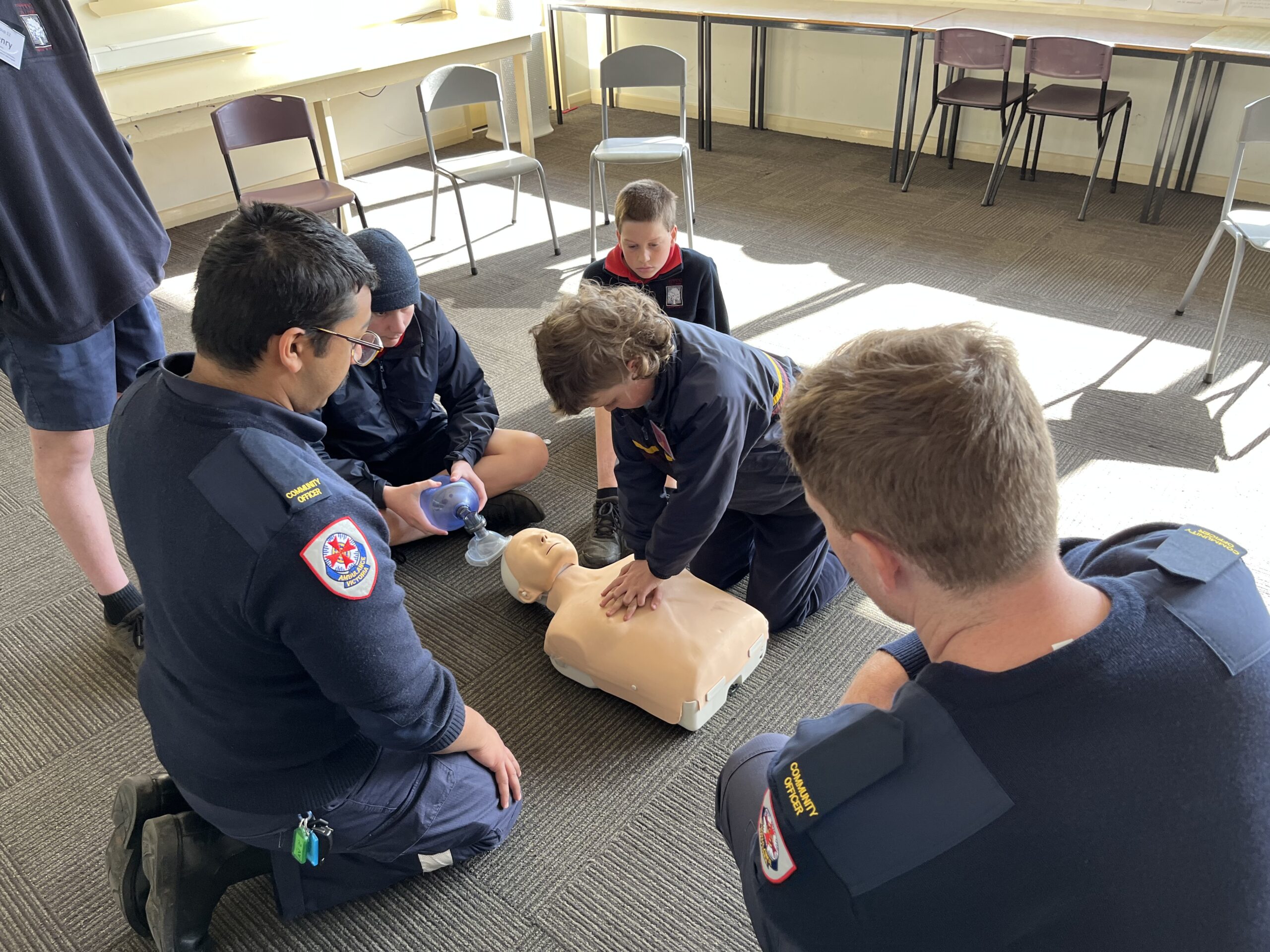
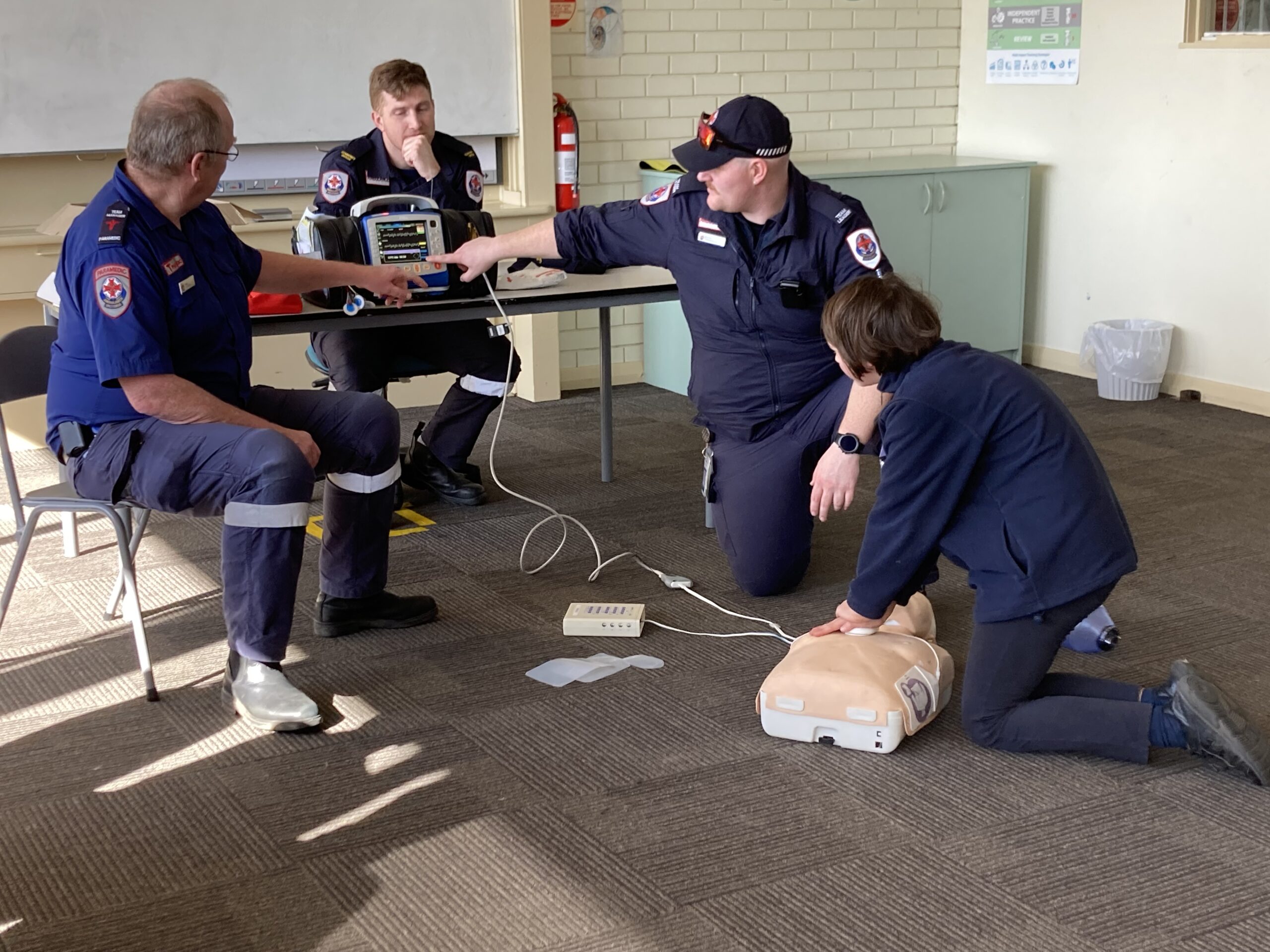
Industry: Food
Presenter: Ian, Gorge Chocolates at the Chocolate Alpaca
Ian gave a short summary of tempering of chocolate before showing students the nutritional panel of a Gorge Chocolate product. He then helped students learn how chocolate-makers determine what to put on a nutritional panel. Students also investigated how businesses such as Gorge Chocolates determine the cost of producing a product and the price they need to sell it for.
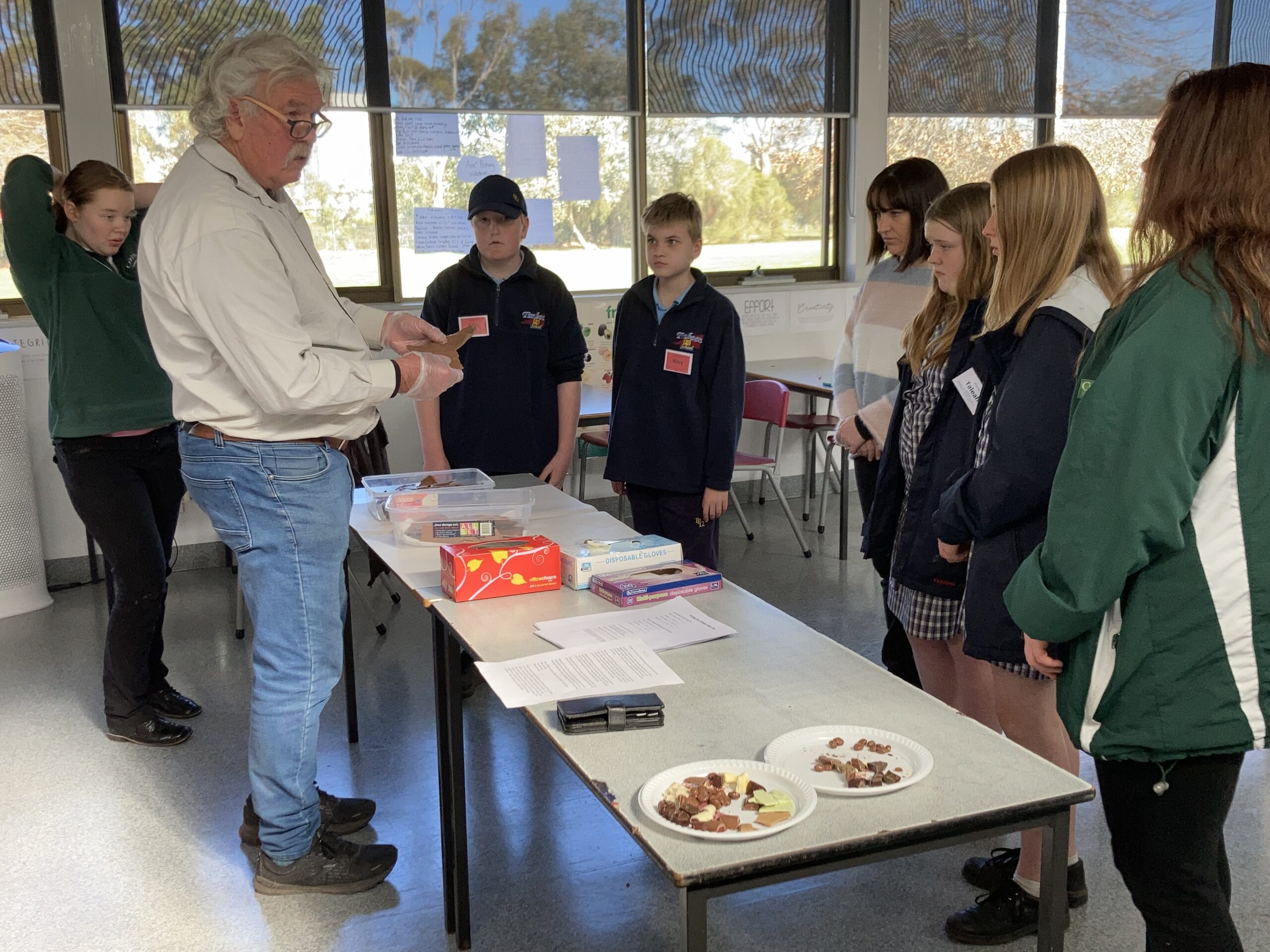
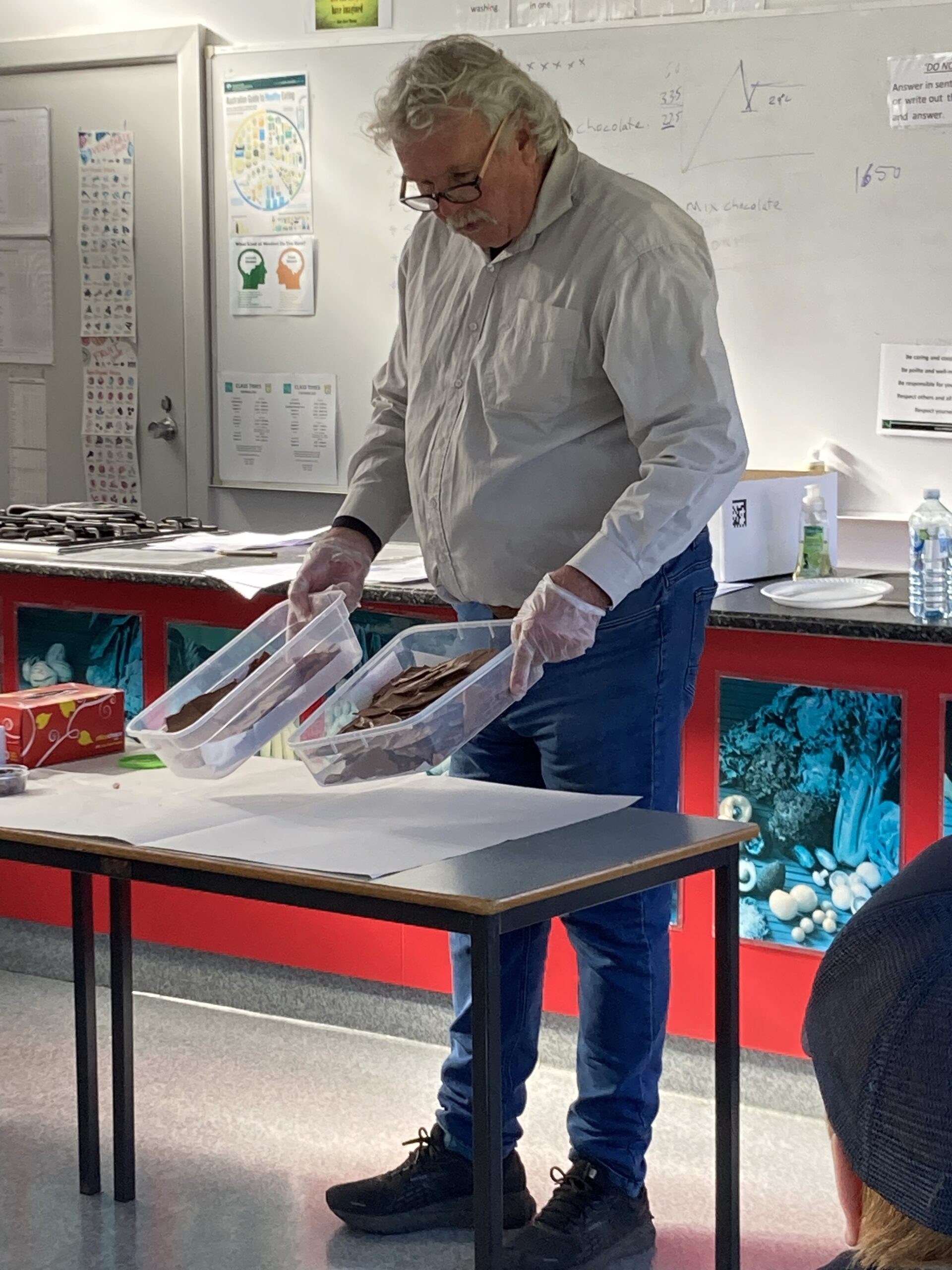
Industry: Hairdressing
Presenter: Sarah Cook, Senior Sub School Leader, VCE Coordinator, MYLNS Support and former salon owner
Maths skills play an integral role in hairdressing particularly when choosing and mixing colours. Ratios, fractions, percentages and measuring are all key components and if you get it wrong the consequences can result in a bad hair day! Students learnt about and experienced mixing formulas. They also checked out their estimation skills with cutting, looking at angles and partitioning when styling hair and tried out some tools and techniques such as perming and foiling on mannequins. Students also considered time and scheduling appointments and how it impacts running a successful business.
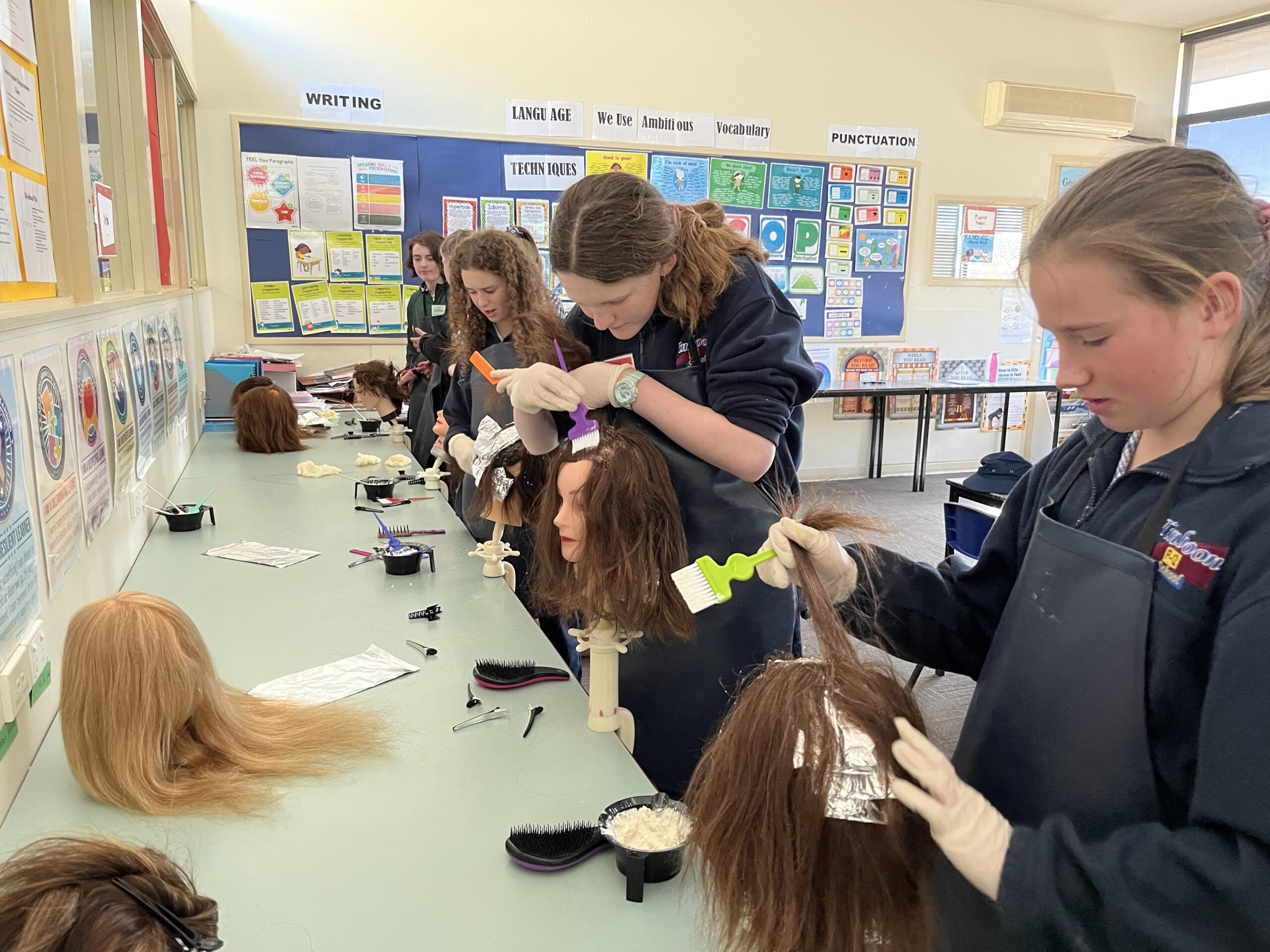
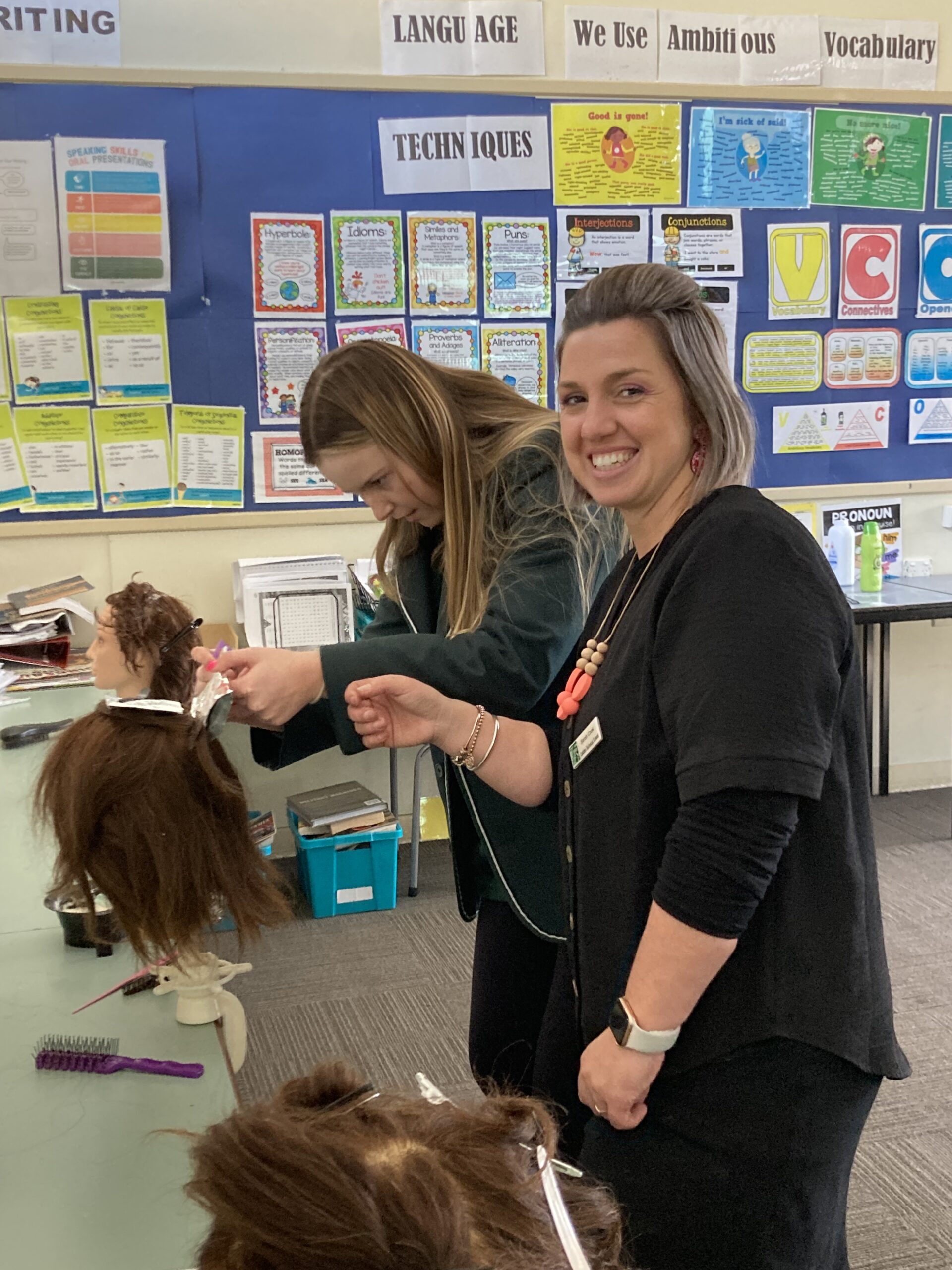
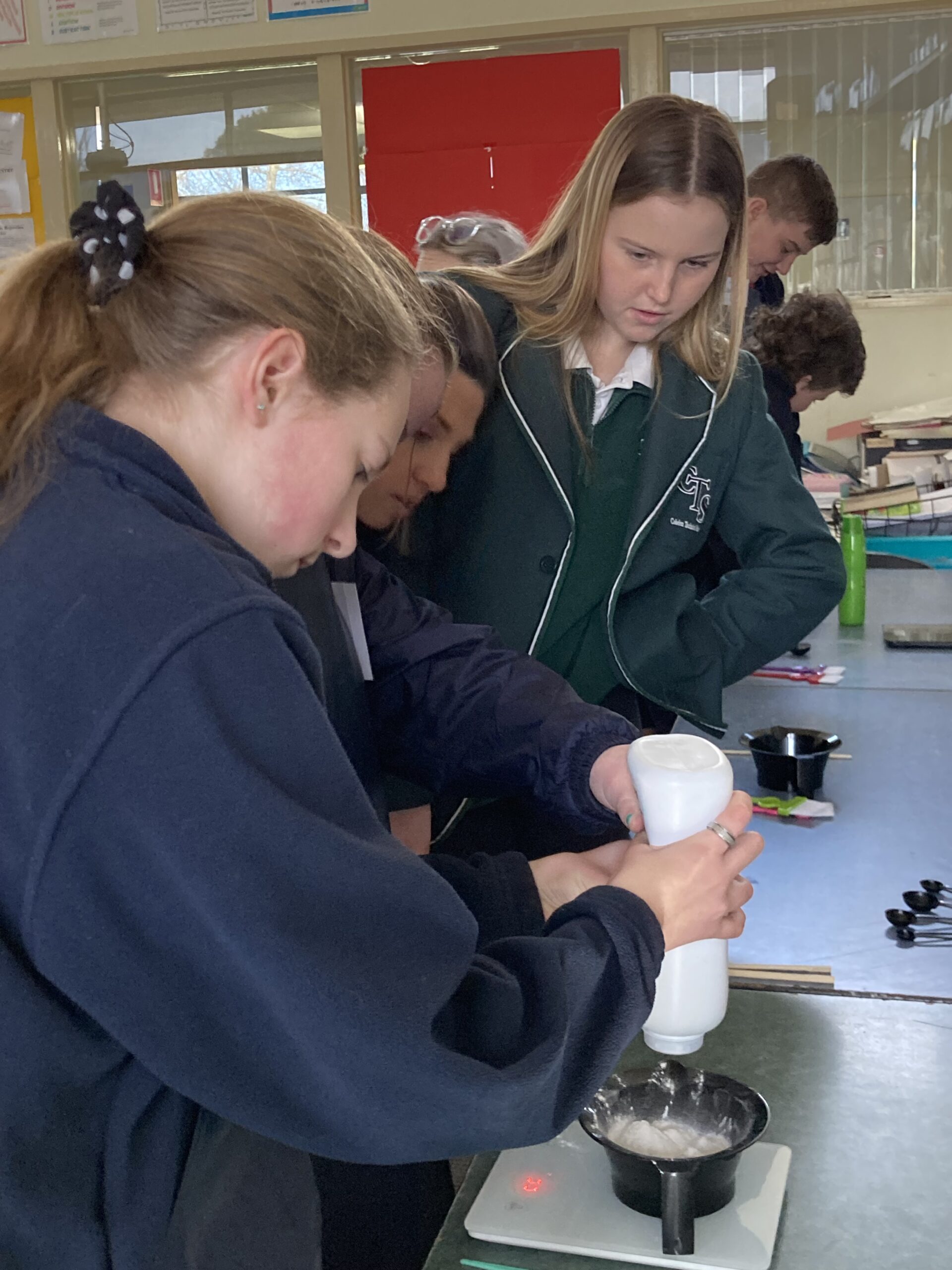
Industry: Horticulture
Presenter: Chonny Dridan, Worn Gundidj Indigenous Nursery
Worn Gundidj Indigenous Nursery is an indigenous-led native plant nursery who source, propagate and supply high-quality indigenous plants from the south-west of Victoria. Students learnt how horticulturists use maths to determine how long to make a cutting and tested their skills on a plant. They also learnt how to calculate the ratio of potting mix to fertiliser for specific species of plants before mixing their own batch, ‘pricking out’ a seedling and planting it in their mix. The compounds of different bush tucker plants were also discussed and students even get to taste some of these!
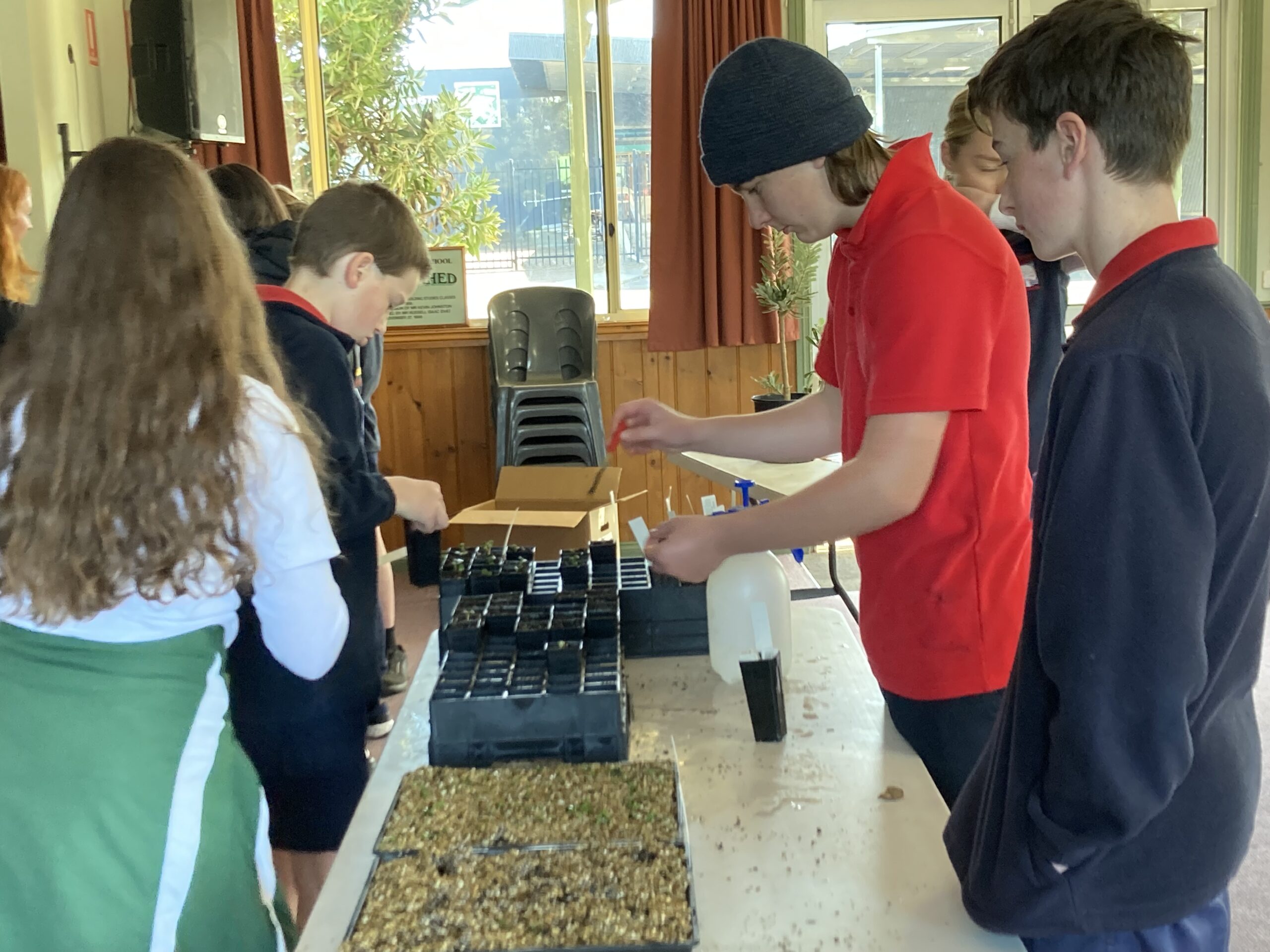
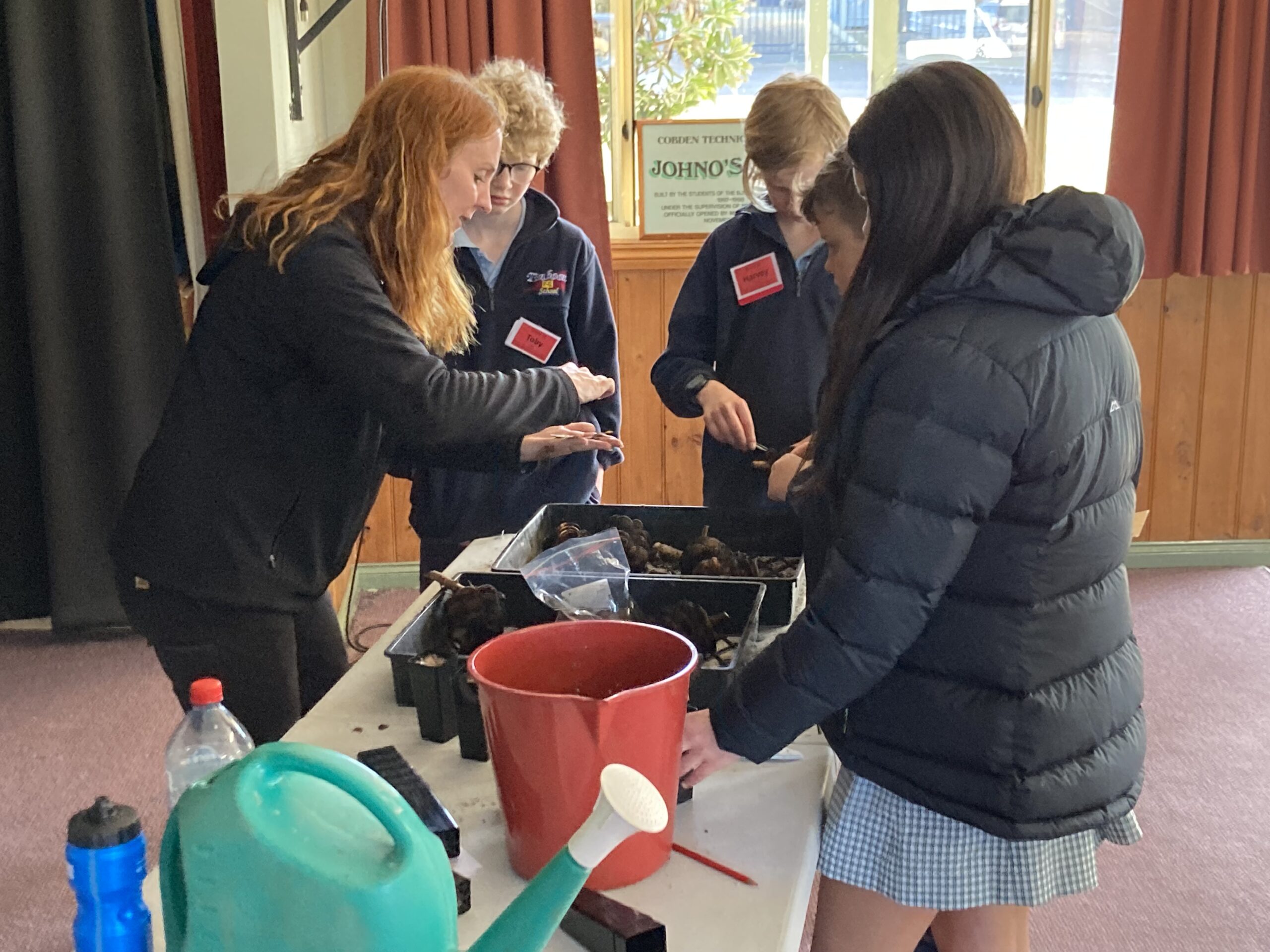
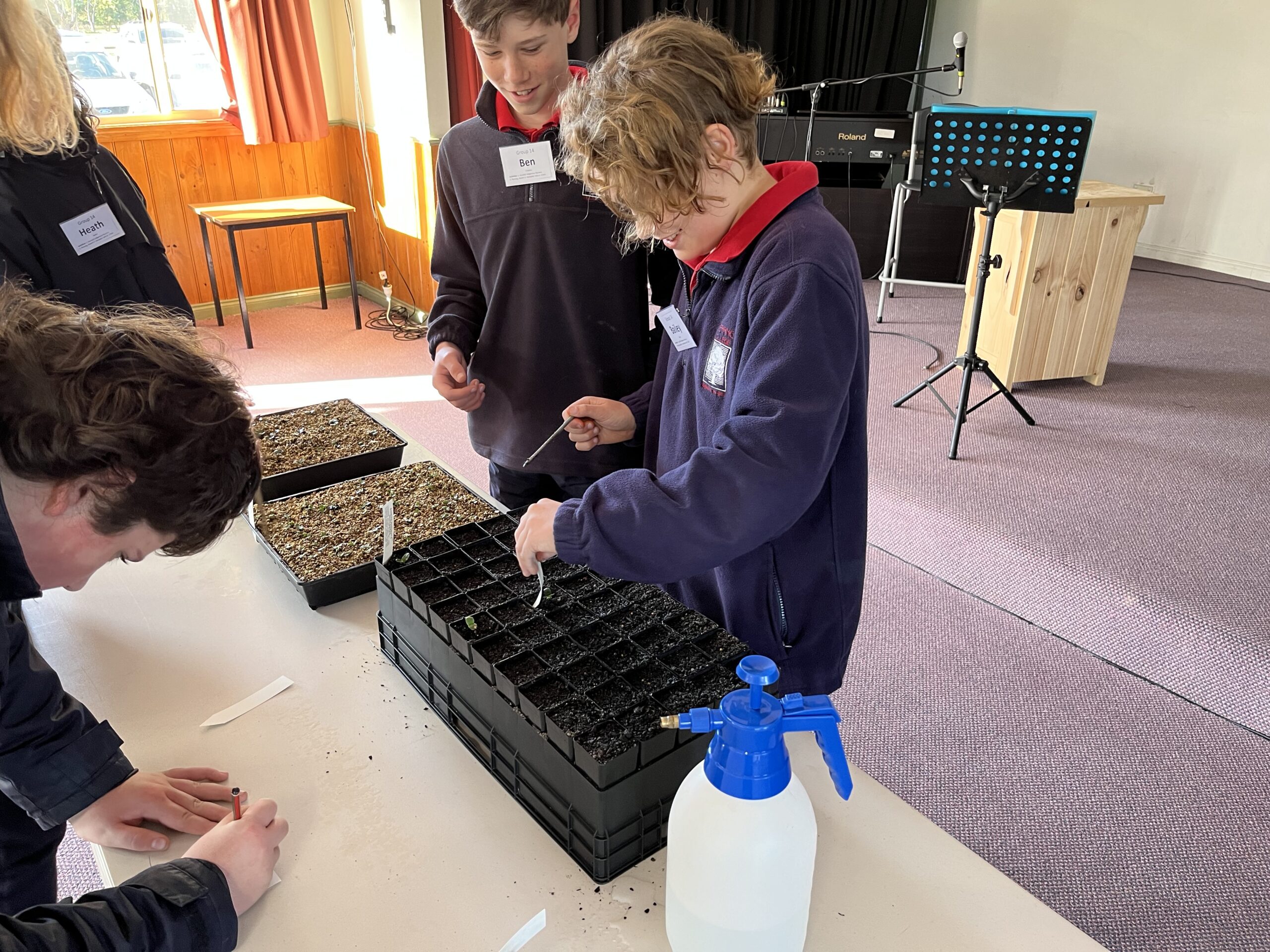
Industry: Veterinary
Presenter: Dr Sophie Ellis and Dr Wendy Parish, Hampden Veterinary Clinic
How do vets know if a cow is pregnant? Students recreated pregnancy testing a cow using a pillow case and a balloon. They then fast-forwarded a few months and the calf had gotten so big, the cow couldn’t push it out! A c-section was needed! Students calculated the drug dosages required for local anaesthetic, antibiotics and pain relief.
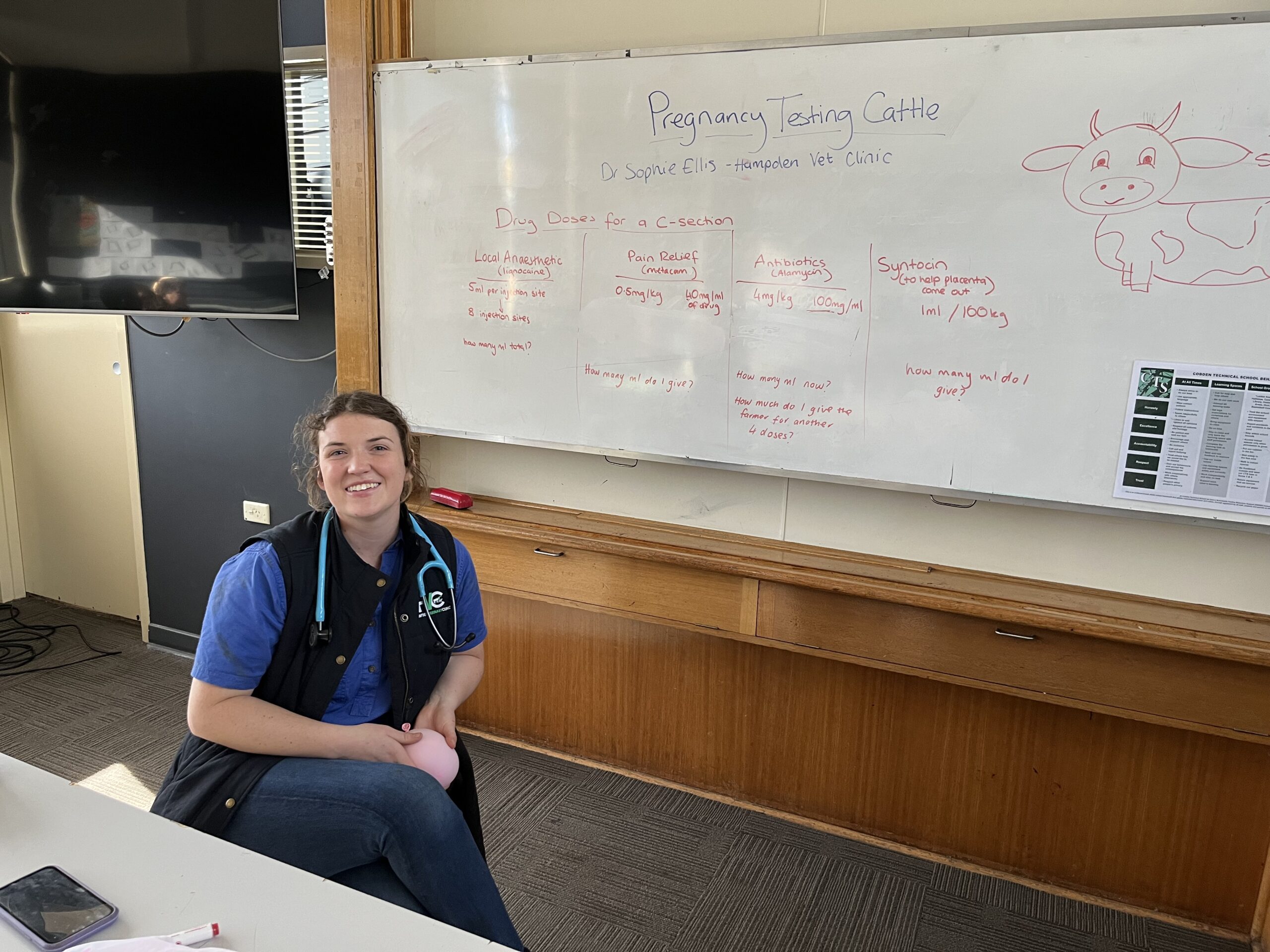
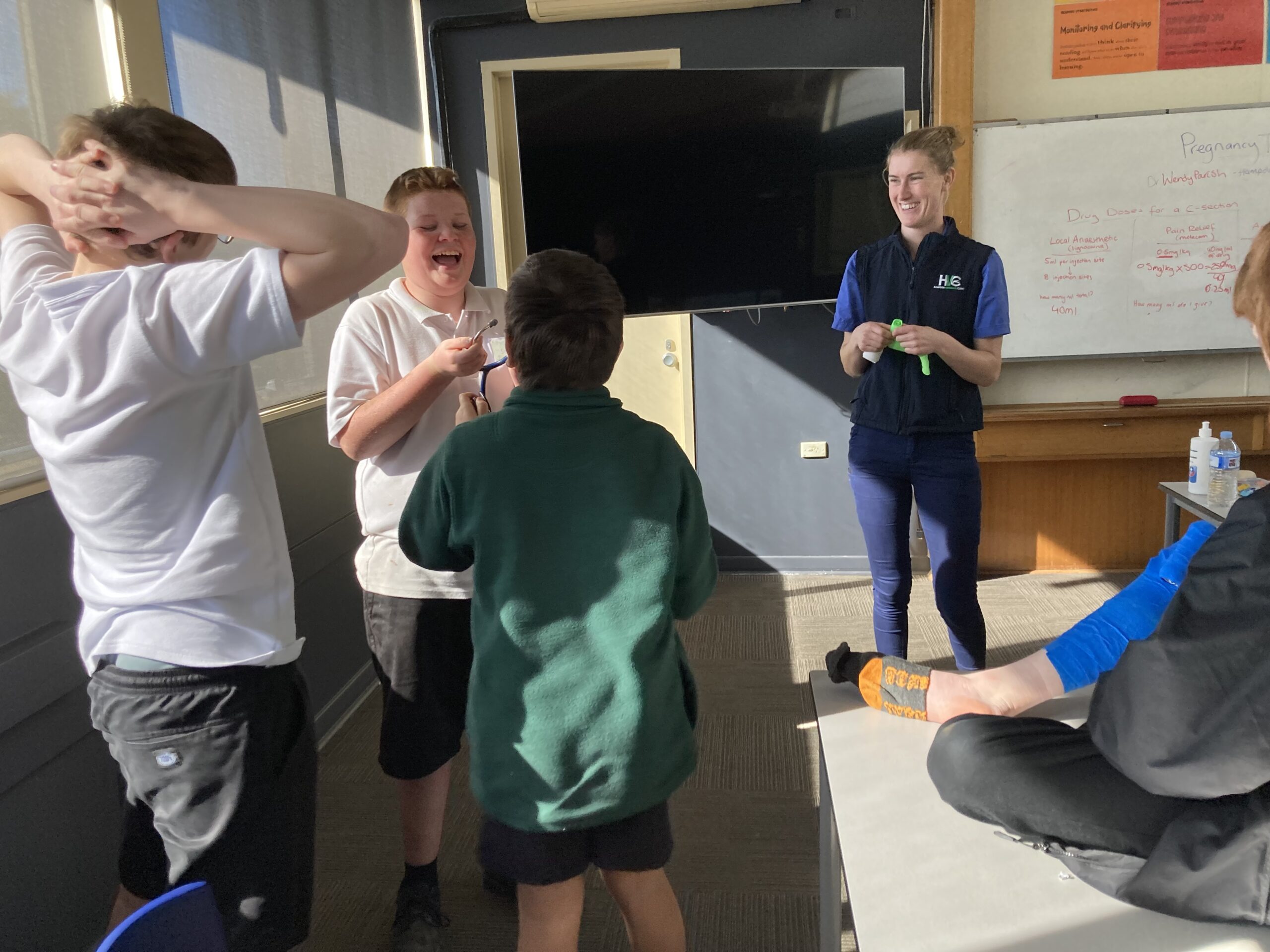
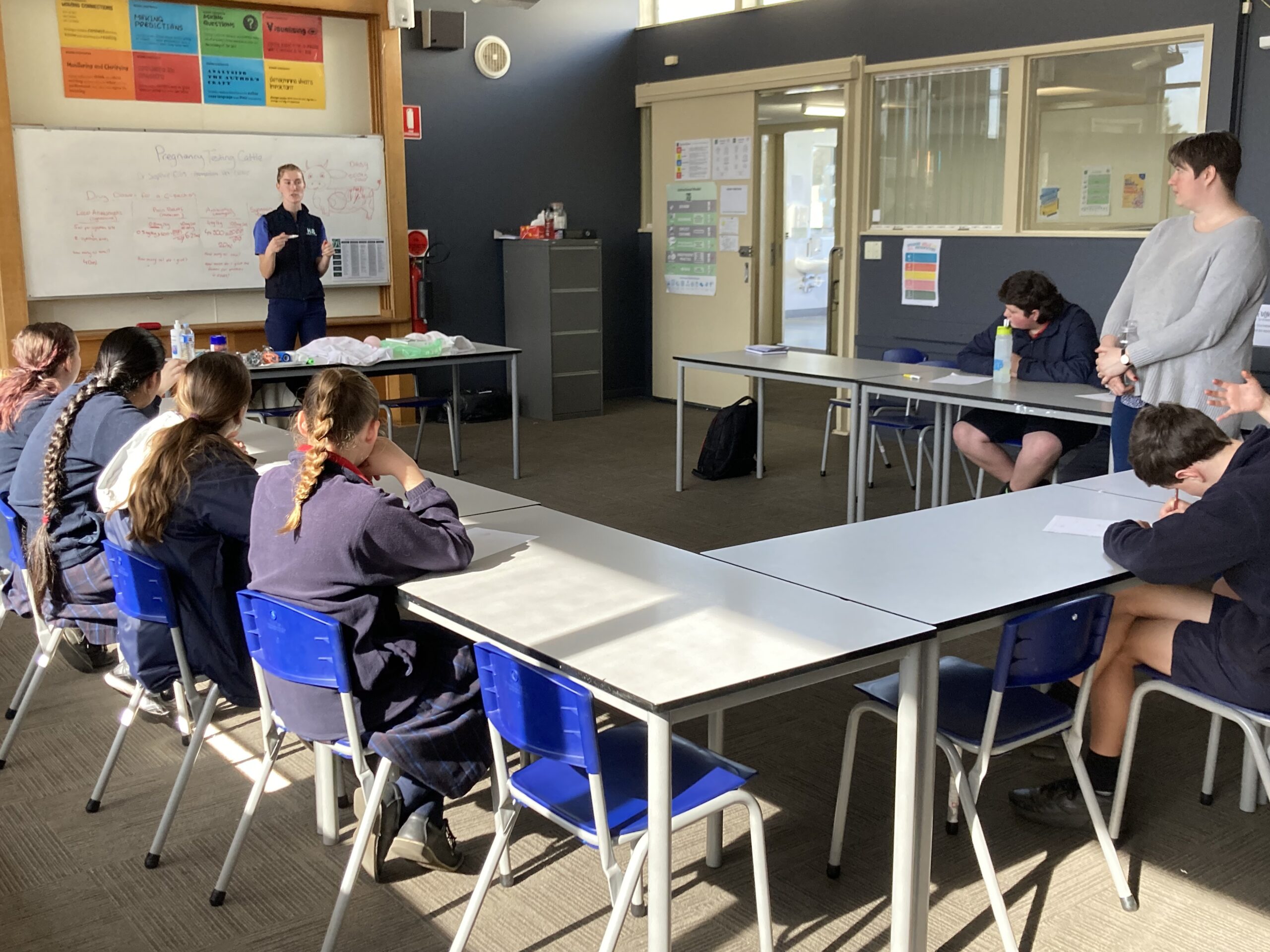
Industry: Dairy, Food
Presenter: Shane Hargreaves, Fonterra
Lots of people love a glass of cold milk in the morning or a warm one before bed, but do we know what makes up milk? Shane from Fonterra taught students the different elements that make up milk and then helped students conduct a separation experiment using vinegar and milk. They discussed the possible contaminates of the dairy drink including sediment and used food dye to represent these. This linked with how Fonterra control these: pasteurisation and homogenisation which students also learnt about. Lastly, Shane let students know what food products they can find Fonterra milk in, and students even got to try some of these!
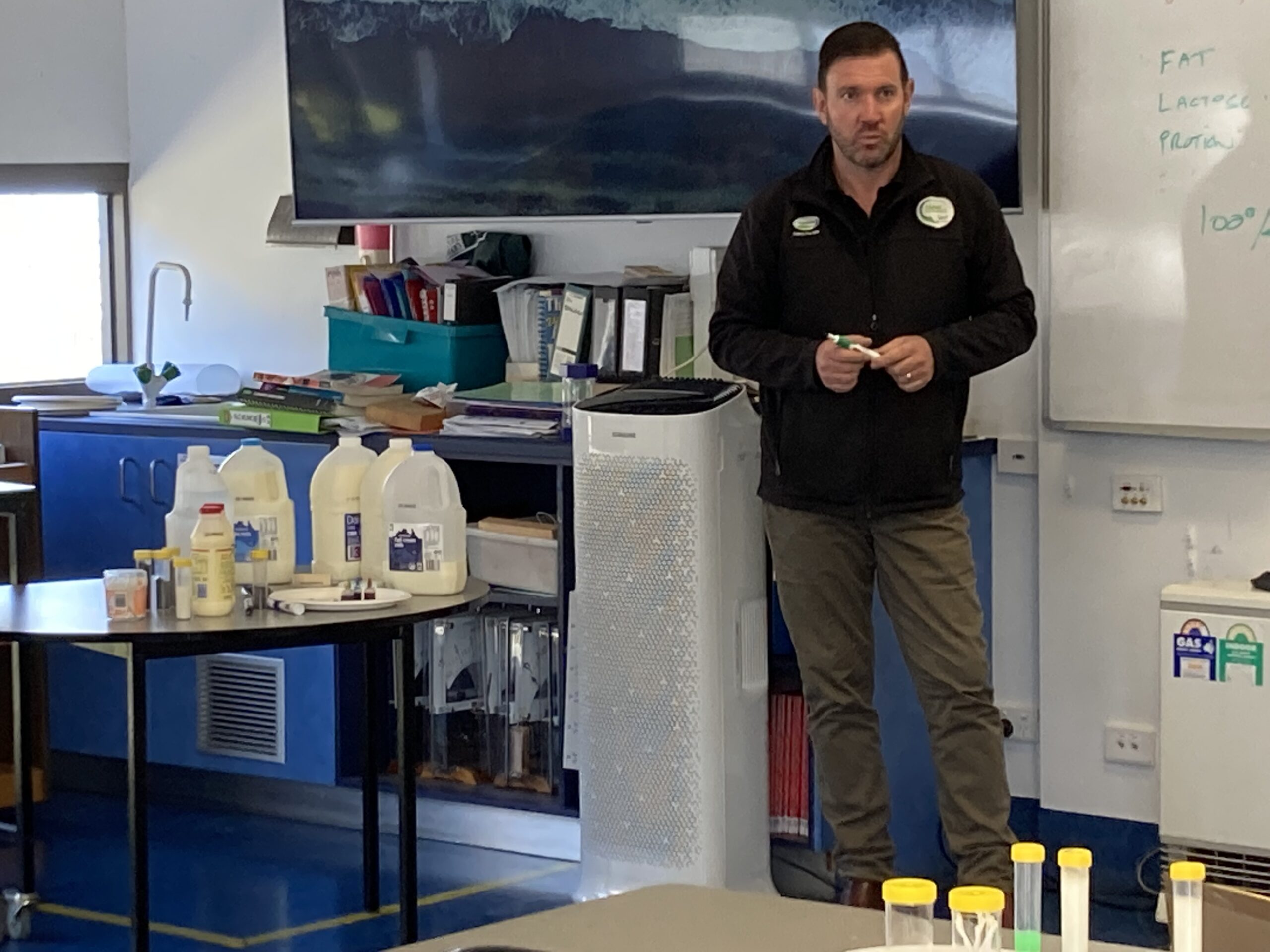
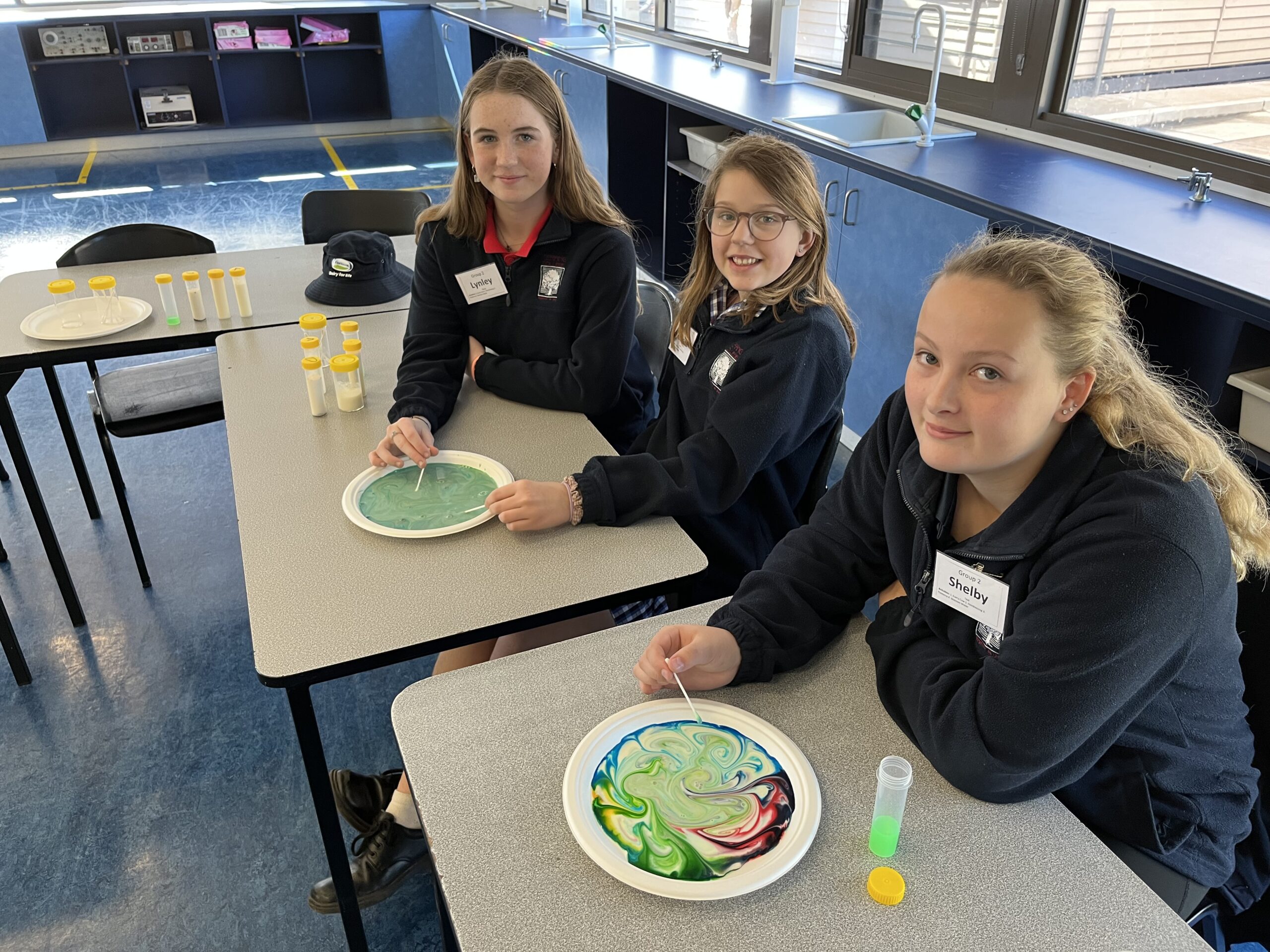
Stay up to date with the latest news, products and more